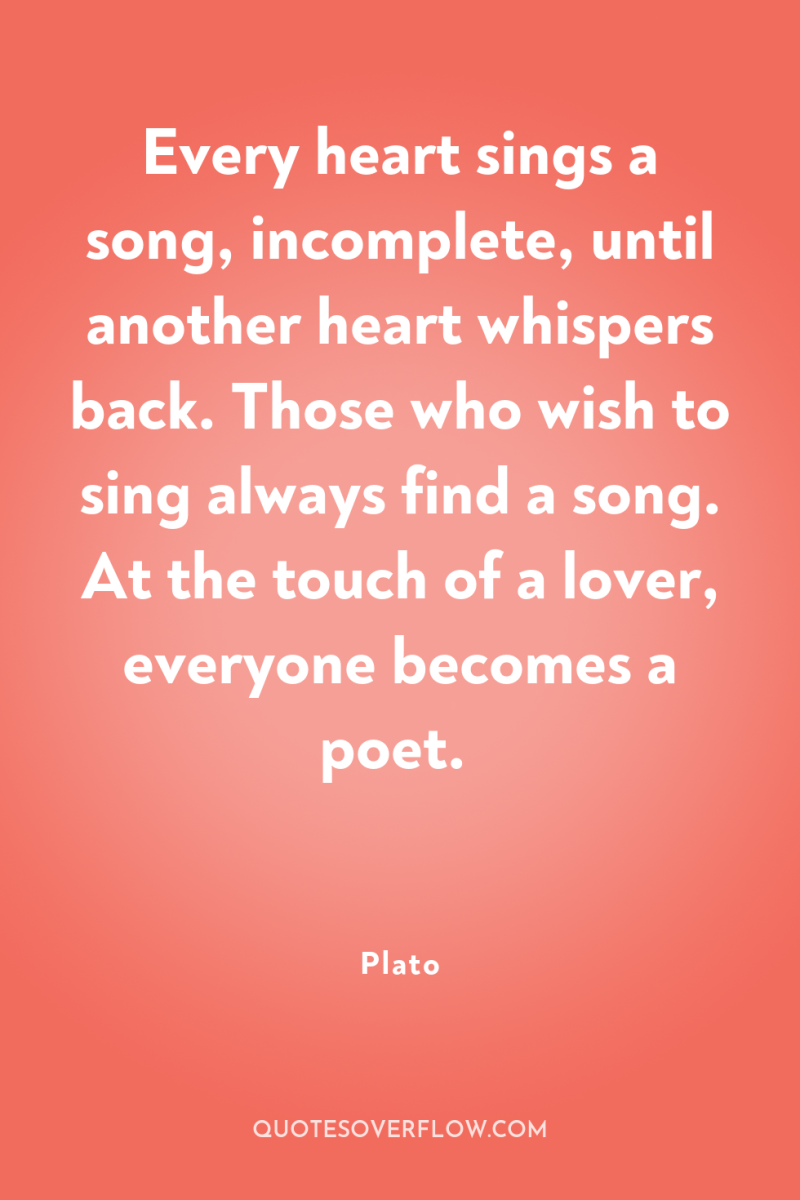
1
Every heart sings a song, incomplete, until another heart whispers back. Those who wish to sing always find a song. At the touch of a lover, everyone becomes a poet.Plato
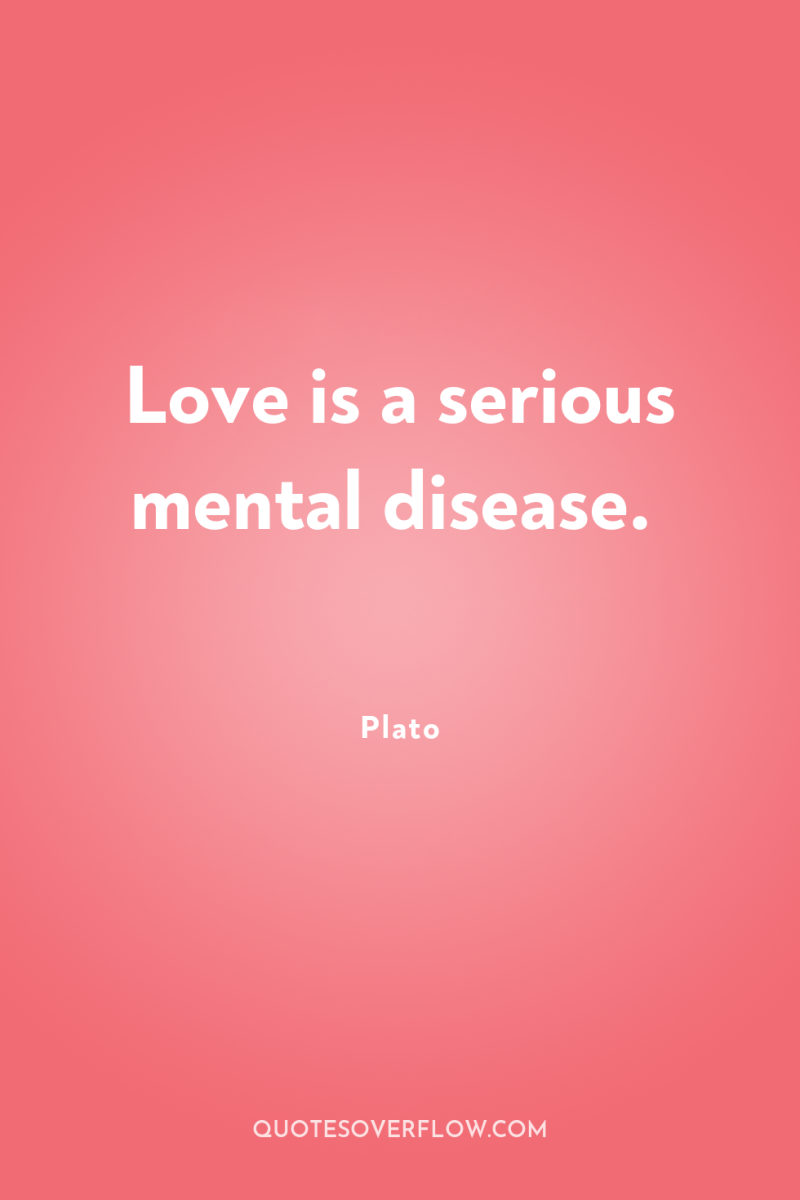
2
Love is a serious mental disease.Plato
3
...and when one of them meets the other half, the actual half of himself, whether he be a lover of youth or a lover of another sort, the pair are lost in an amazement of love and friendship and intimacy and one will not be out of the other's sight, as I may say, even for a moment...Plato
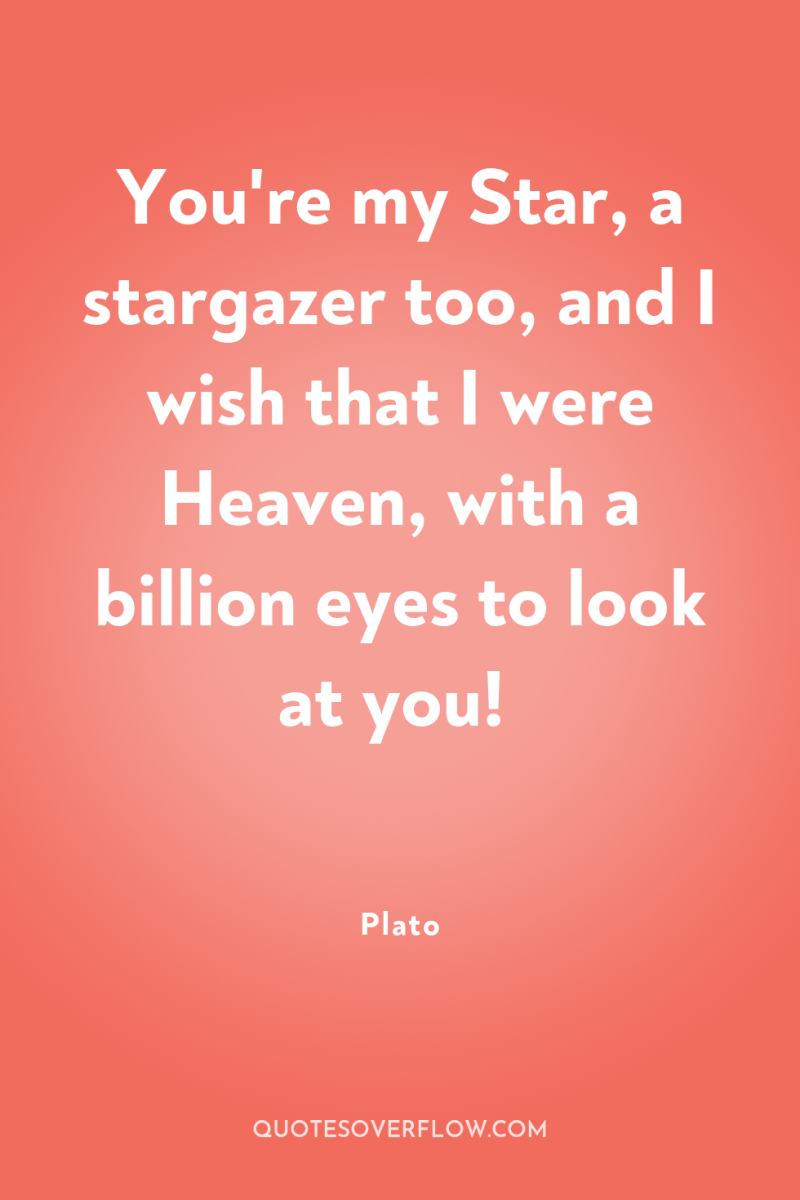
4
You're my Star, a stargazer too, and I wish that I were Heaven, with a billion eyes to look at you!Plato

5
Education is teaching our children to desire the right things.Plato
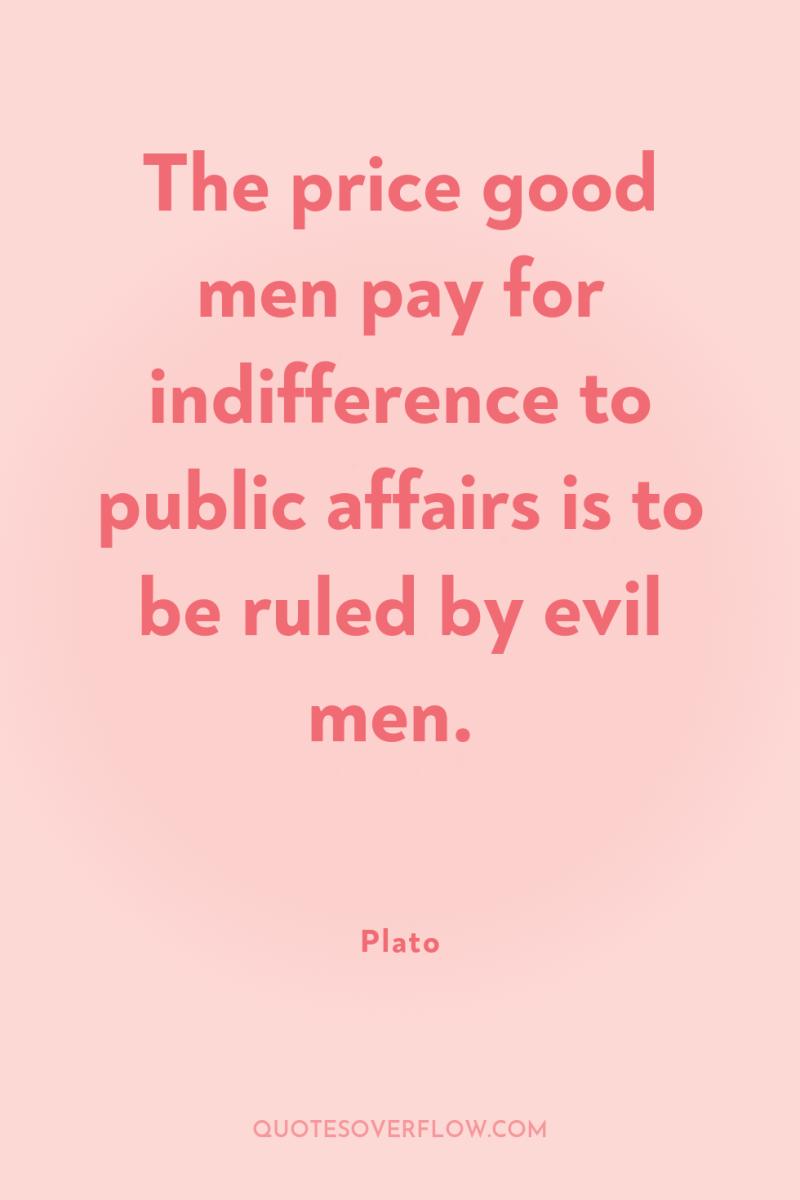
6
The price good men pay for indifference to public affairs is to be ruled by evil men.Plato
7
Do not train a child to learn by force or harshness; but direct them to it by what amuses their minds, so that you may be better able to discover with accuracy the peculiar bent of the genius of each.Plato
8
One of the penalties of refusing to participate in politics is that you end up being governed by your inferiors.Plato
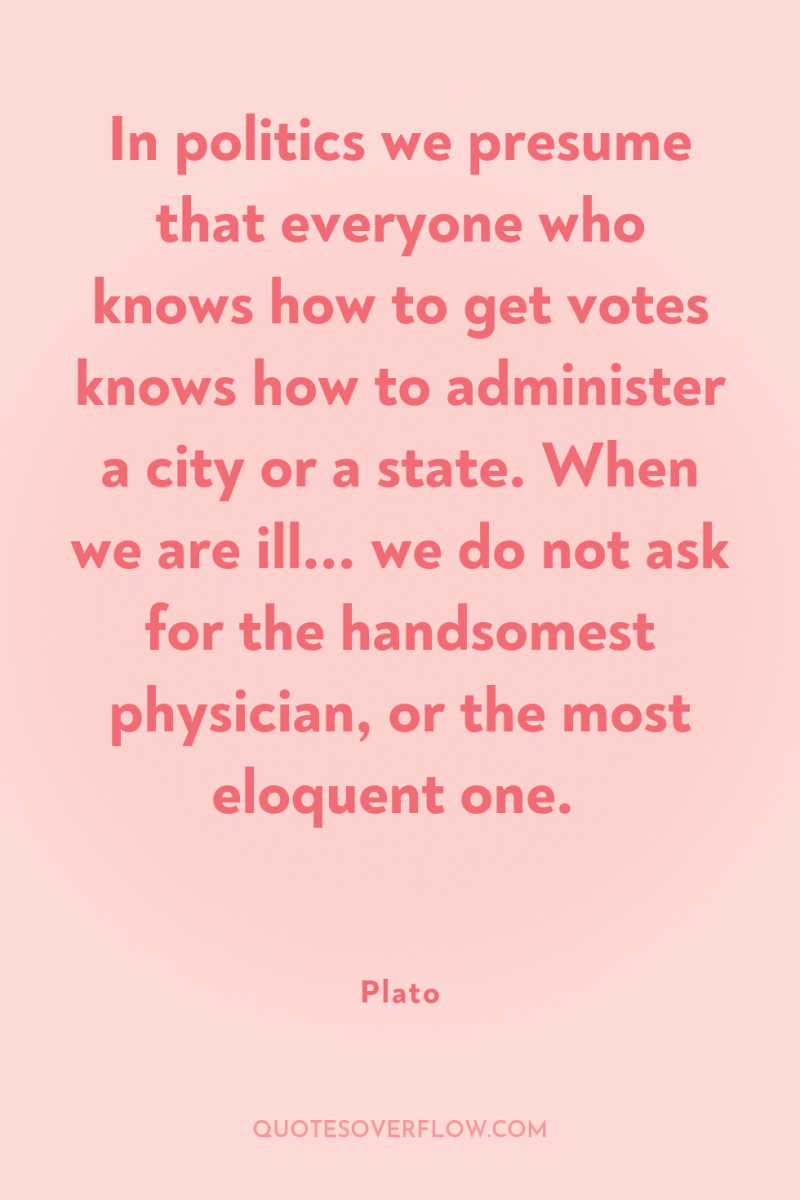
9
In politics we presume that everyone who knows how to get votes knows how to administer a city or a state. When we are ill... we do not ask for the handsomest physician, or the most eloquent one.Plato
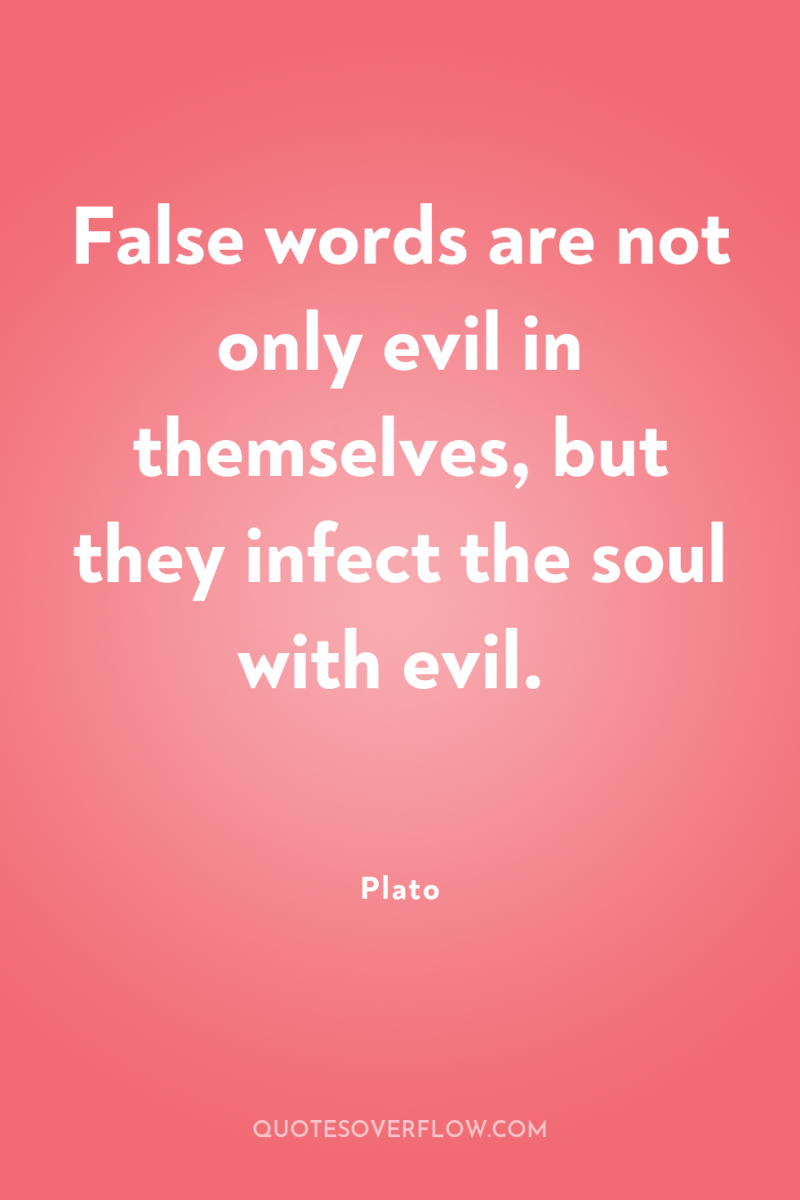
10
False words are not only evil in themselves, but they infect the soul with evil.Plato
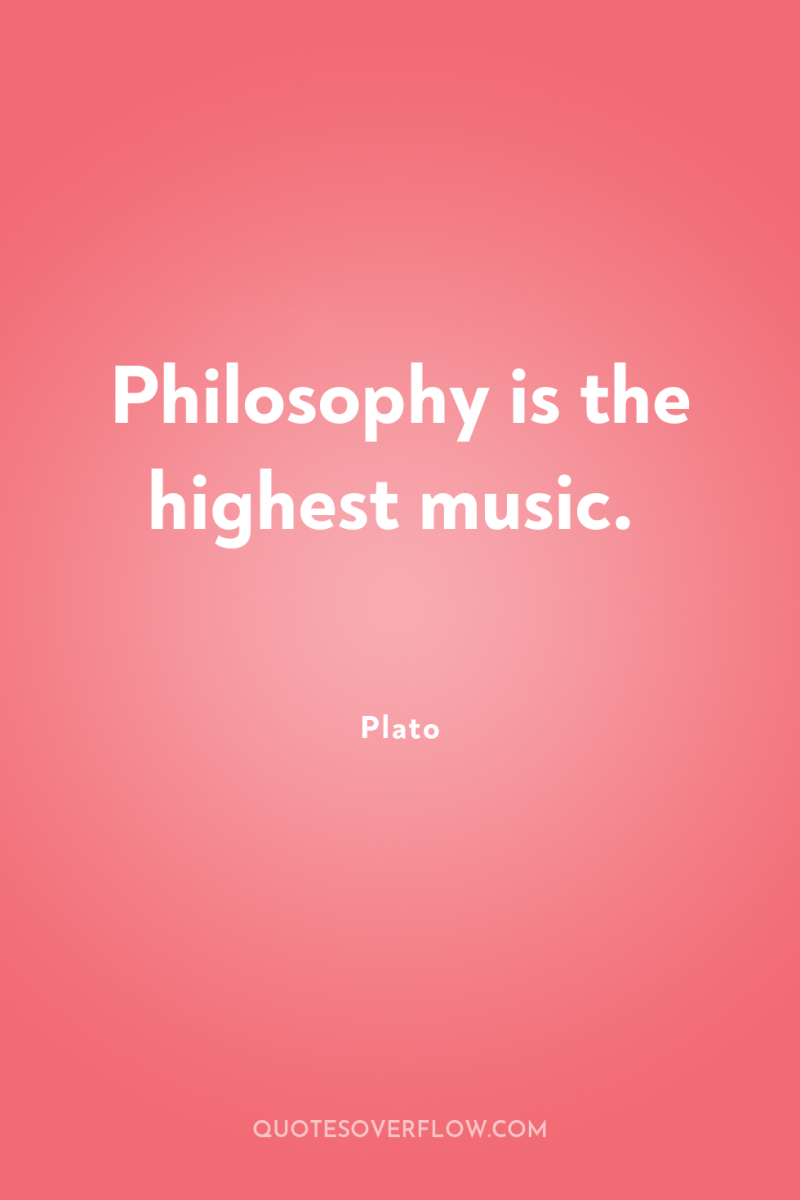
11
Philosophy is the highest music.Plato
12
In practice people who study philosophy too long become very odd birds, not to say thoroughly vicious; while even those who are the best of them are reduced by...[philosophy] to complete uselessness as members of society.Plato
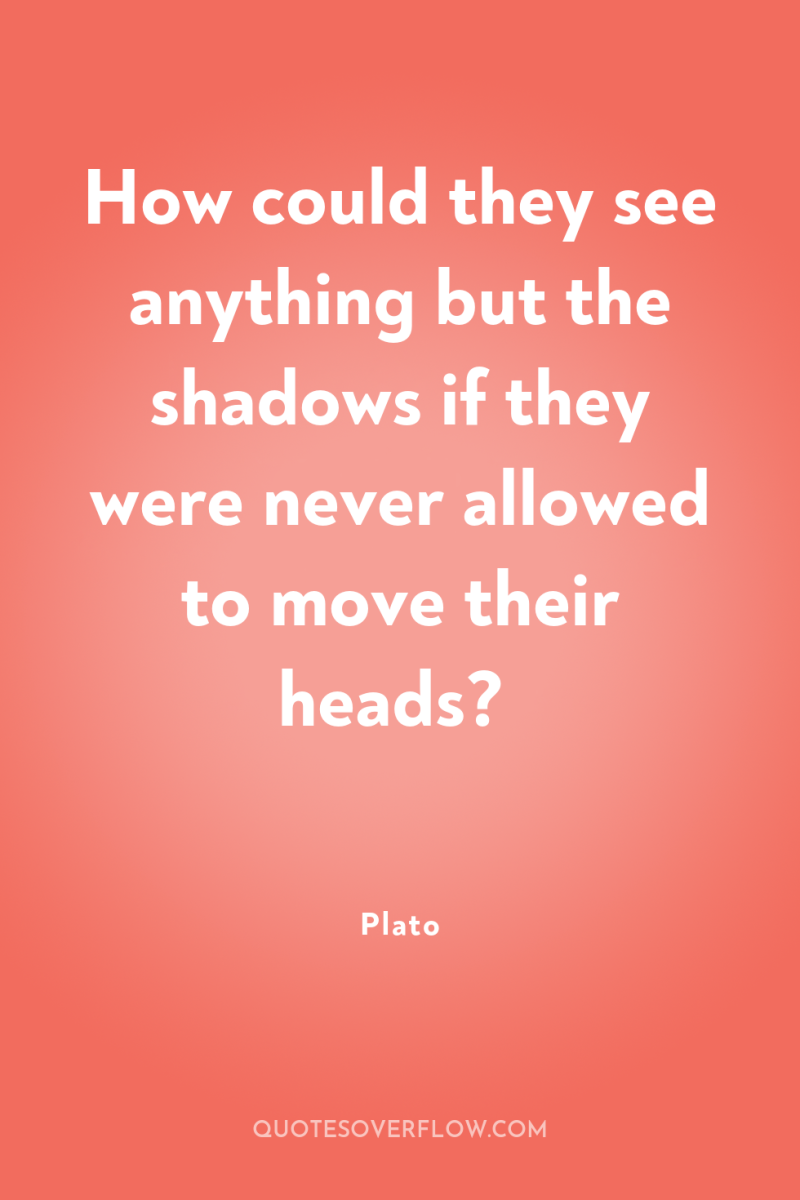
13
How could they see anything but the shadows if they were never allowed to move their heads?Plato
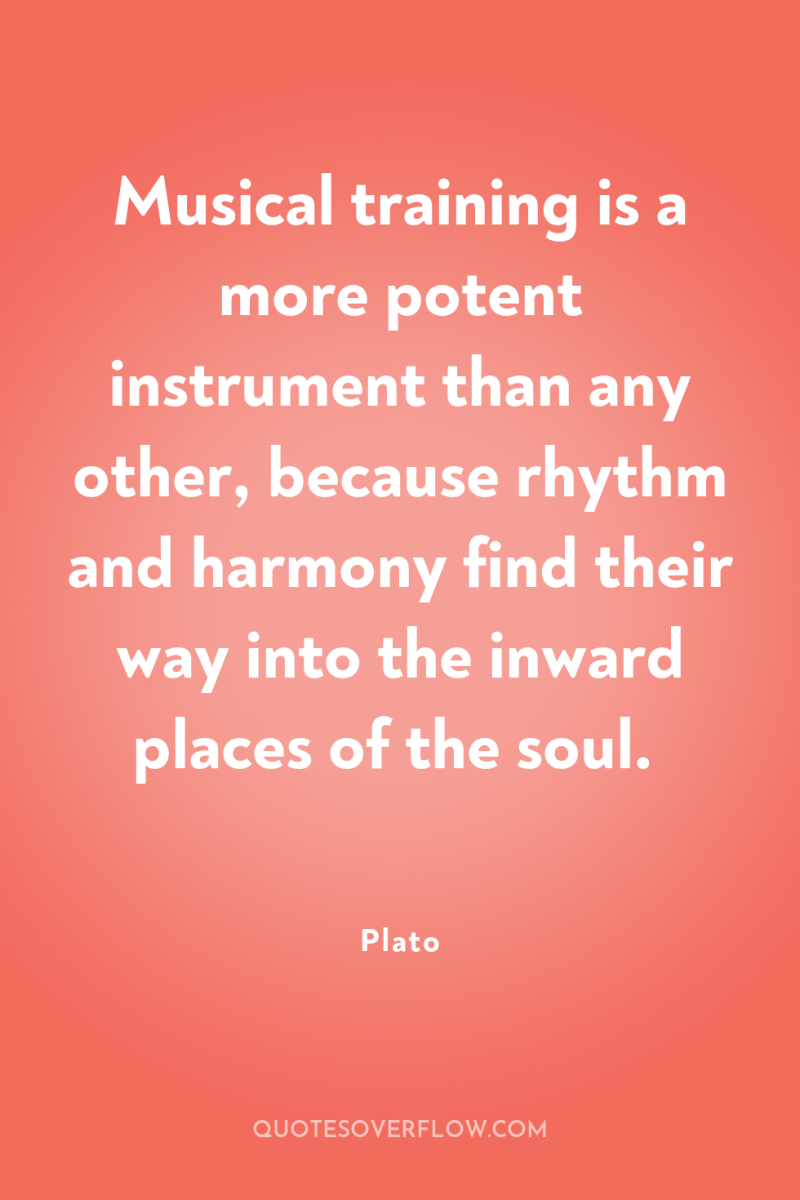
14
Musical training is a more potent instrument than any other, because rhythm and harmony find their way into the inward places of the soul.Plato
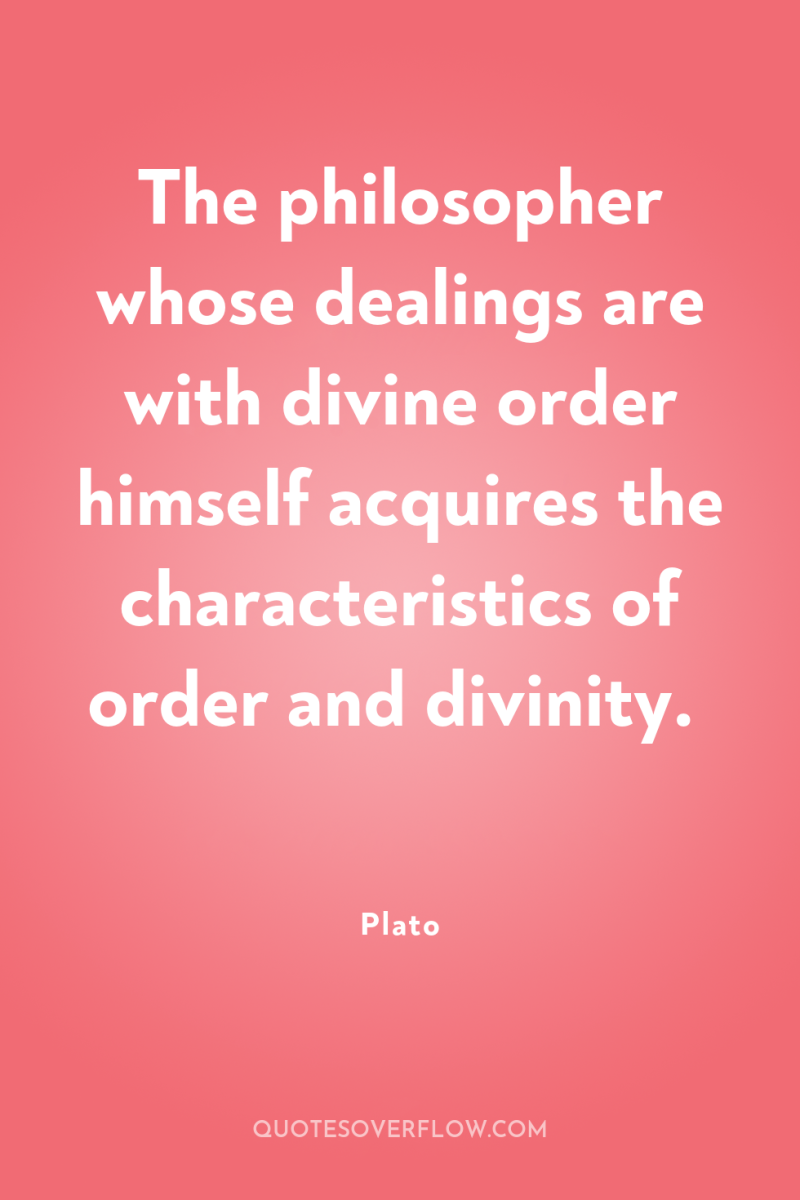
15
The philosopher whose dealings are with divine order himself acquires the characteristics of order and divinity.Plato
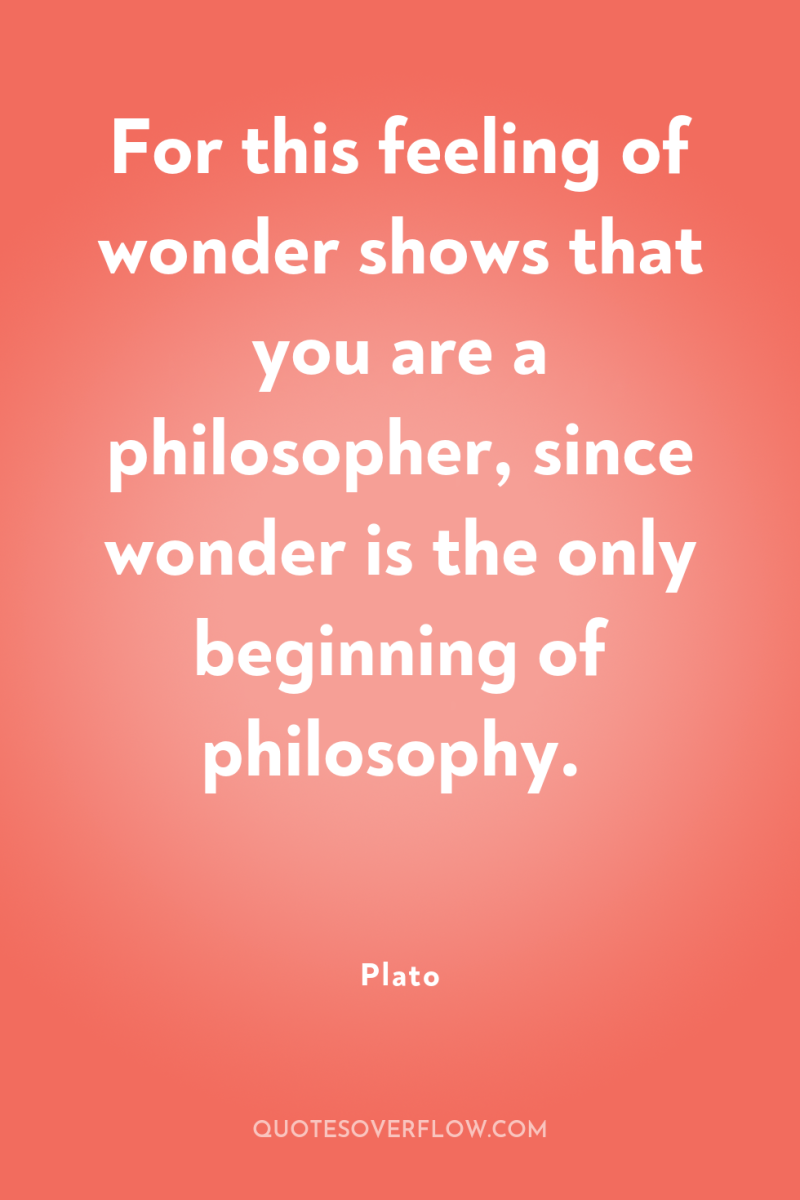
16
For this feeling of wonder shows that you are a philosopher, since wonder is the only beginning of philosophy.Plato
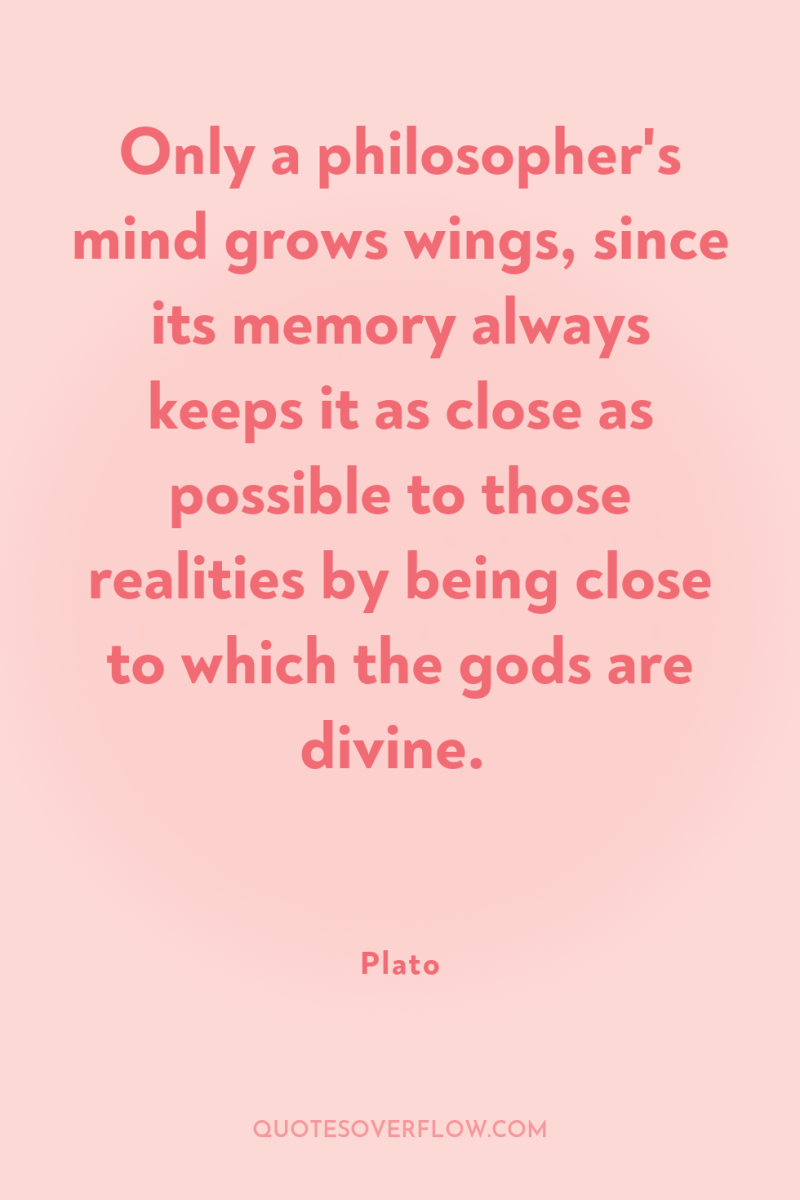
17
Only a philosopher's mind grows wings, since its memory always keeps it as close as possible to those realities by being close to which the gods are divine.Plato
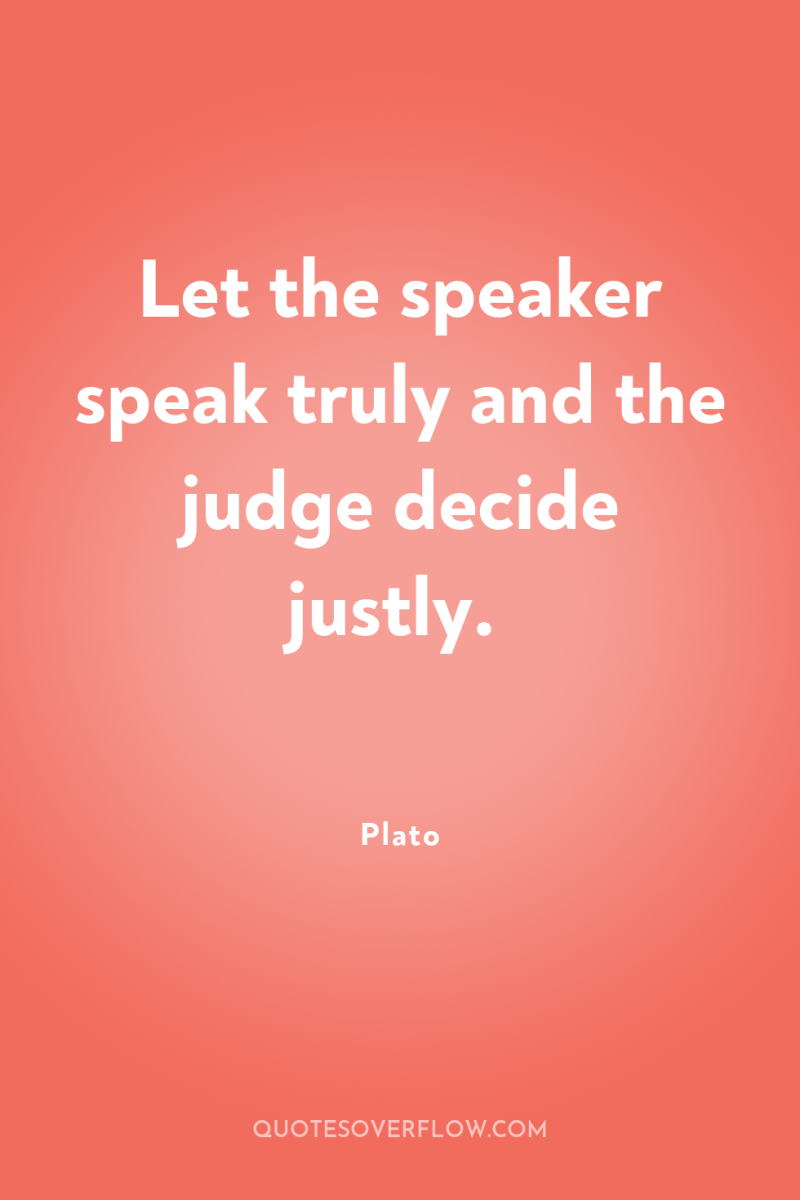
18
Let the speaker speak truly and the judge decide justly.Plato
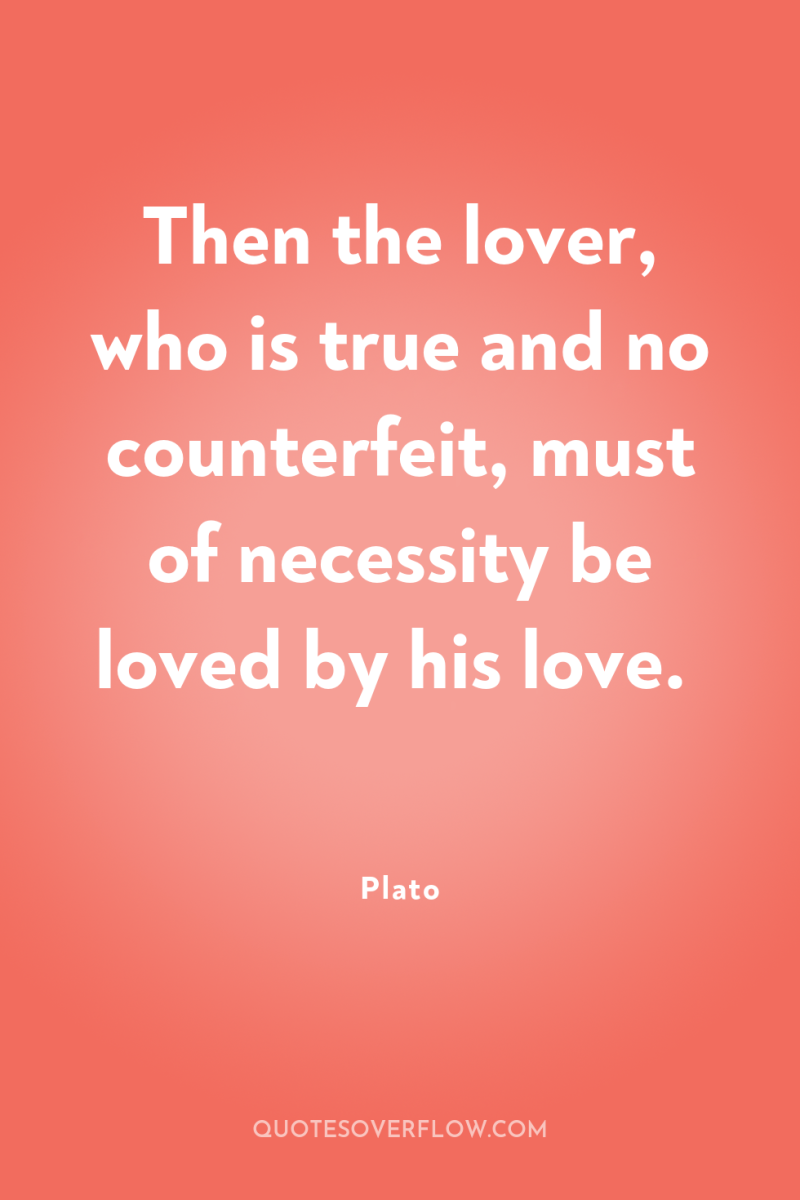
19
Then the lover, who is true and no counterfeit, must of necessity be loved by his love.Plato
20
Ideas are the source of all thingsPlato
21
..when he looks at Beauty in the only way that Beauty can be seen - only then will it become possible for him to give birth not to images of virtue (because he's in touch with no images), but to true virtue [arete] (because he is in touch with true Beauty). The love of the gods belongs to anyone who has given to true virtue and nourished it, and if any human being could become immortal, it would be he.Plato

22
Knowledge becomes evil if the aim be not virtuous.Plato
23
O dear Pan and all the other gods of this place, grant that I may be beautiful inside. Let all my external possessions be in friendly harmony with what is within. May I consider the wise man rich. As for gold, let me have as much as a moderate man could bear and carry with him.Plato
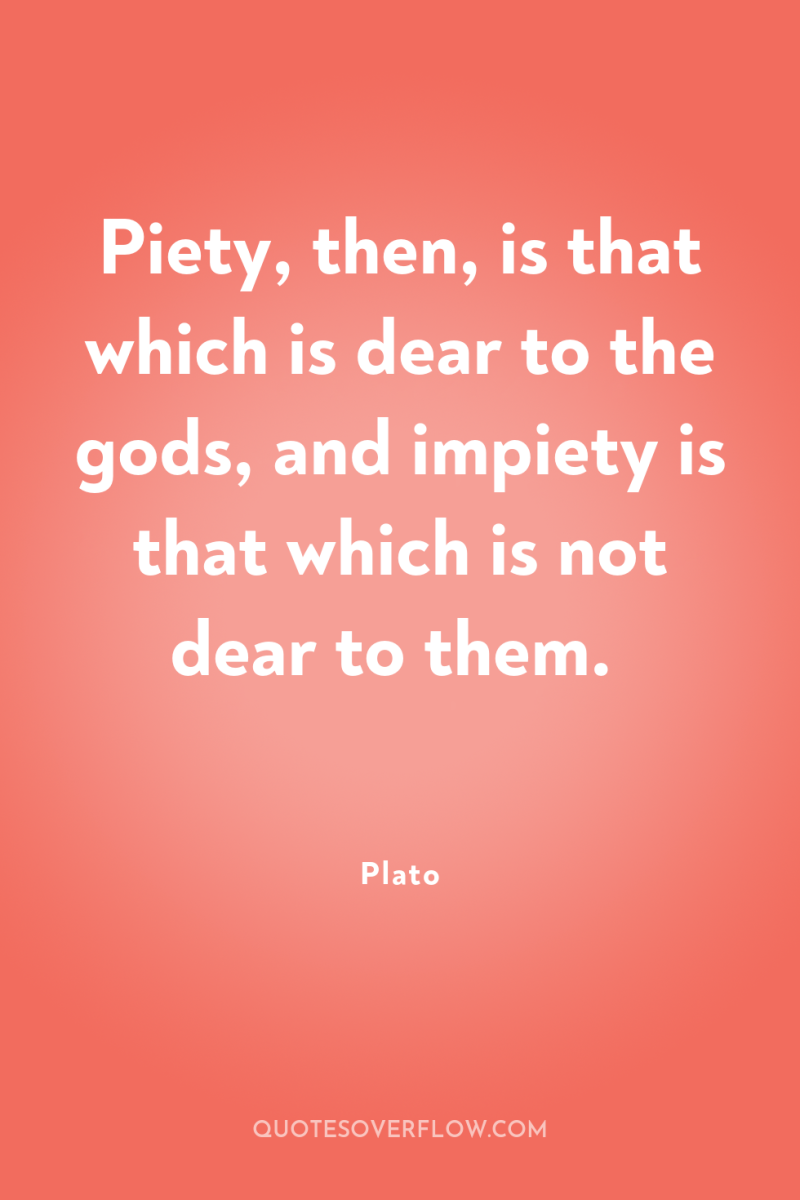
24
Piety, then, is that which is dear to the gods, and impiety is that which is not dear to them.Plato
25
....I am inclined to think that these muscles and bones of mine would have gone off long ago to Megara or Boeotia–by the dog they would, if they had been moved only by their own idea of what was best.(tr Jowett)Plato
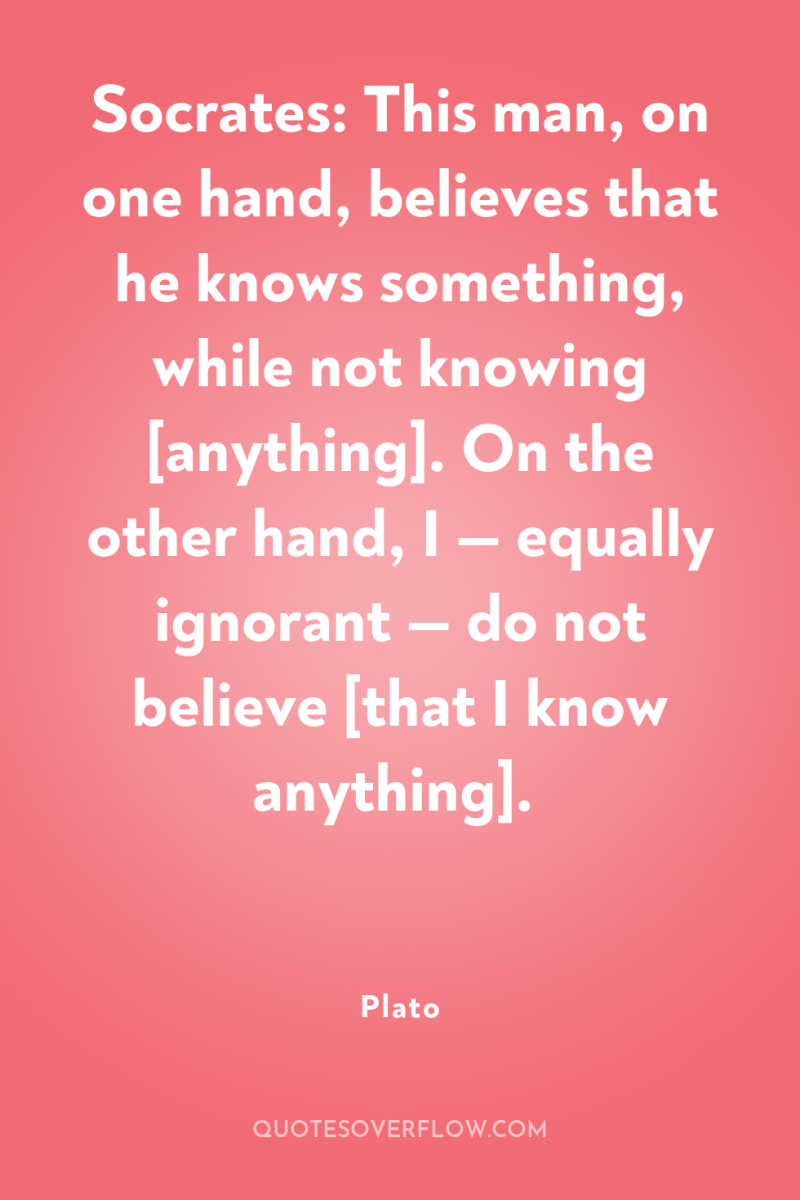
26
Socrates: This man, on one hand, believes that he knows something, while not knowing [anything]. On the other hand, I — equally ignorant — do not believe [that I know anything].Plato
27
For to fear death, men, is in fact nothing other than to seem to be wise, but not to be so. For it is to seem to know what one does not know: no one knows whether death does not even happen to be the greatest of all goods for the human being; but people fear it as though they knew well that it is the greatest of evils.Plato
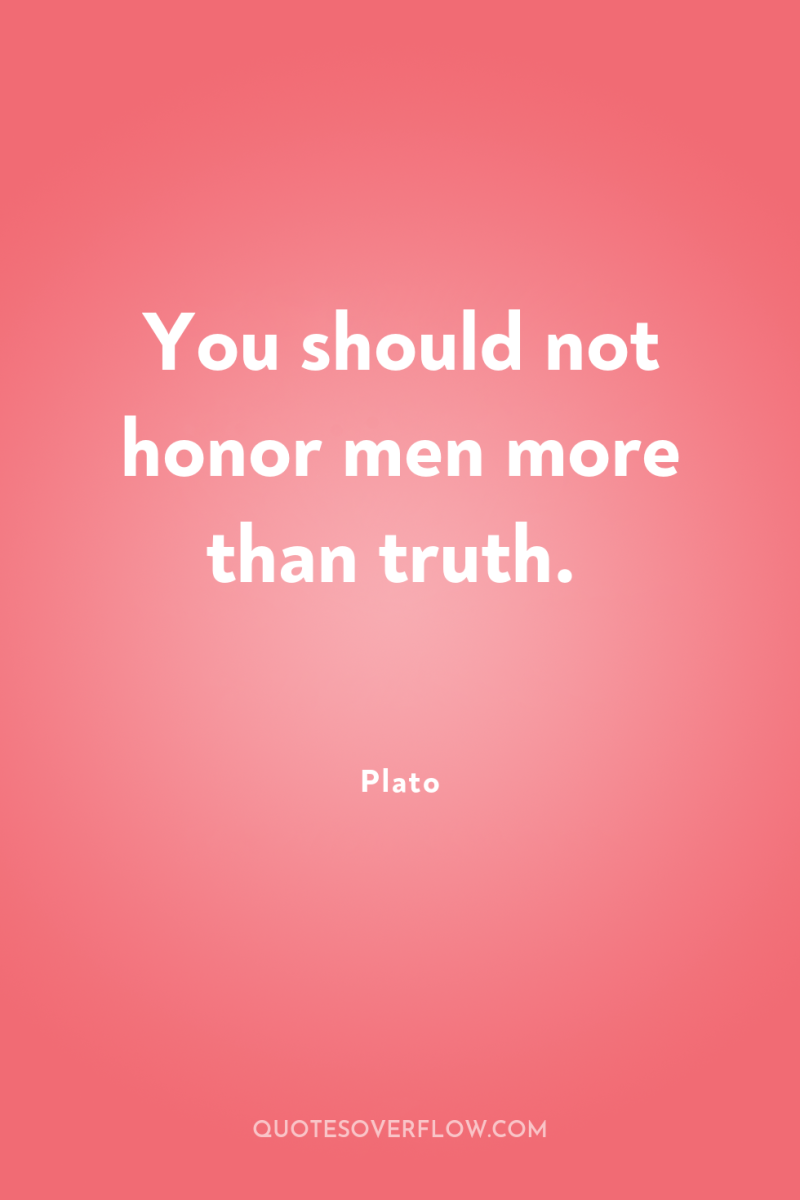
28
You should not honor men more than truth.Plato
29
Similarly with regard to truth, won't we say that a soul is maimed if it hates a voluntary falsehood, cannot endure to have one in itself, and is greatly angered when it exists in others, but is nonetheless content to accept an involuntary falsehood, isn't angry when it is caught being ignorant, and bears its lack of learning easily, wallowing in it like a pig?Plato
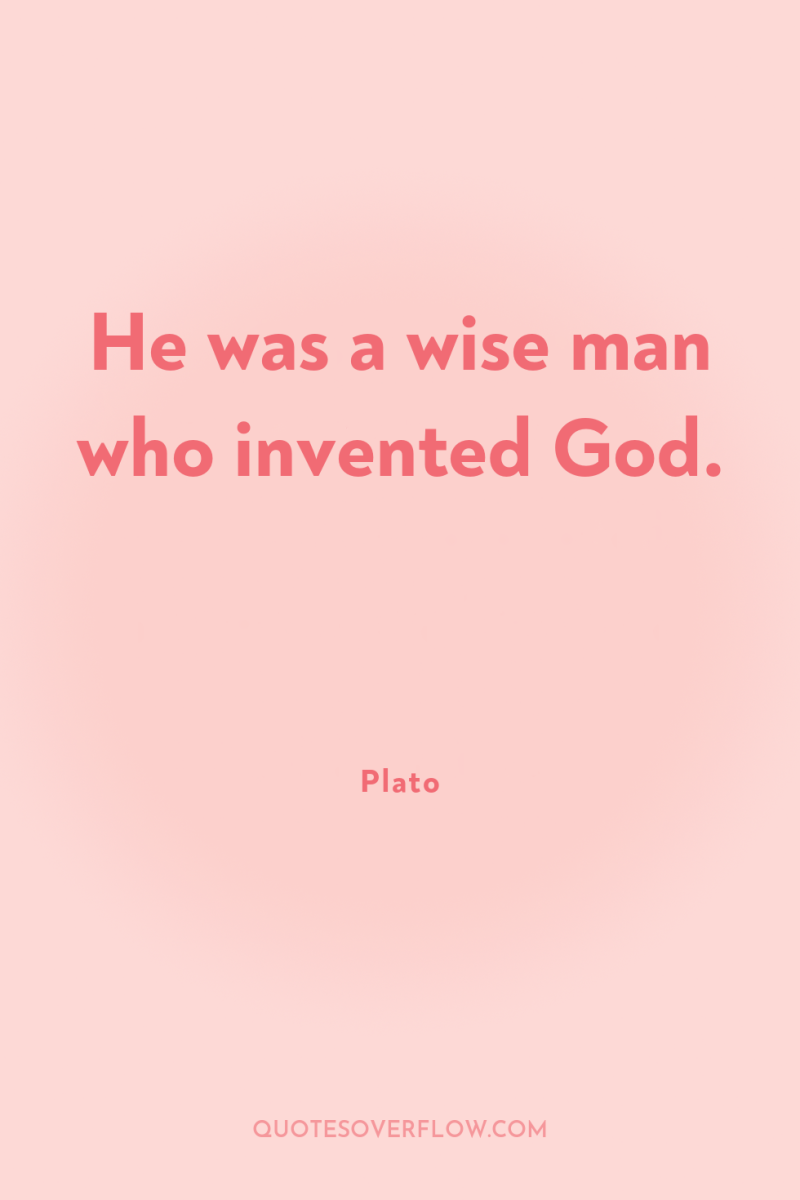
30
He was a wise man who invented God.Plato
31
I thought to myself: I am wiser than this man; neither of us probably knows anything that is really good, but he thinks he has knowledge, when he has not, while I, having no knowledge, do not think I have.Plato
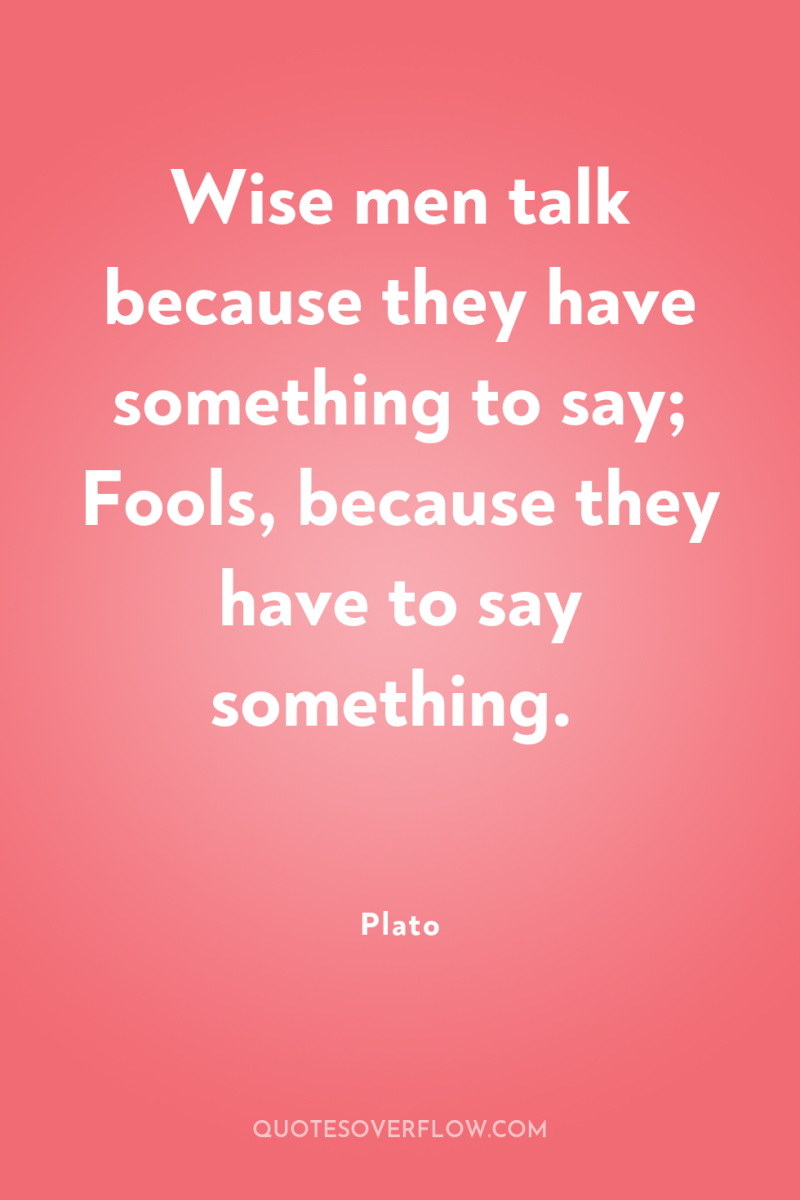
32
Wise men talk because they have something to say; Fools, because they have to say something.Plato
33
The man who makes everything that leads to happiness depends upon himself, and not upon other men, has adopted the very best plan for living happily. This is the man of moderation, the man of manly character and of wisdom.Plato
34
For to fear death, my friends, is only to think ourselves wise without really being wise, for it is to think that we know what we do not know. For no one knows whether death may not be the greatest good that can happen to man.Plato
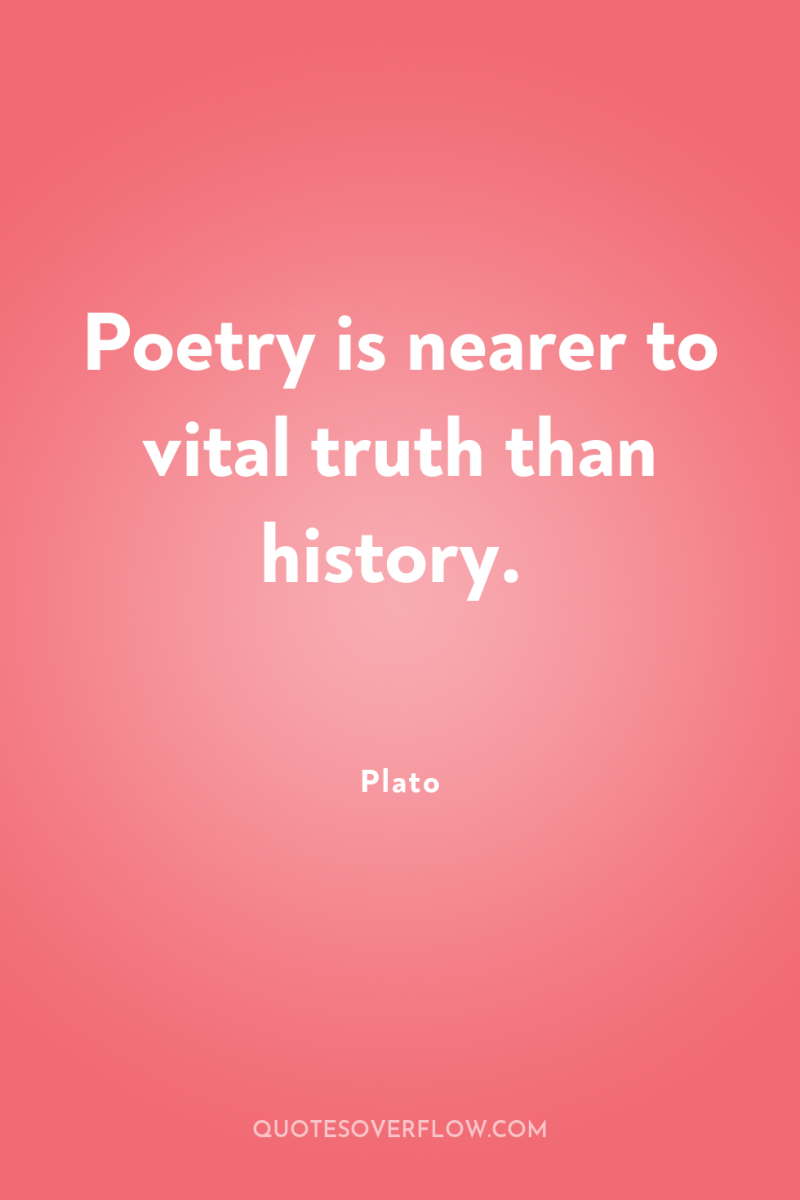
35
Poetry is nearer to vital truth than history.Plato
36
There is also a third kind of madness, which is possession by the Muses, enters into a delicate and virgin soul, and there inspiring frenzy, awakens lyric.. But he, who, not being inspired and having no touch of madness in his soul, comes to the door and thinks he will get into the temple by the help of art--he, I say, and his poetry are not admitted; the sane man is nowhere at all when he enters into rivalry with the madman.Plato
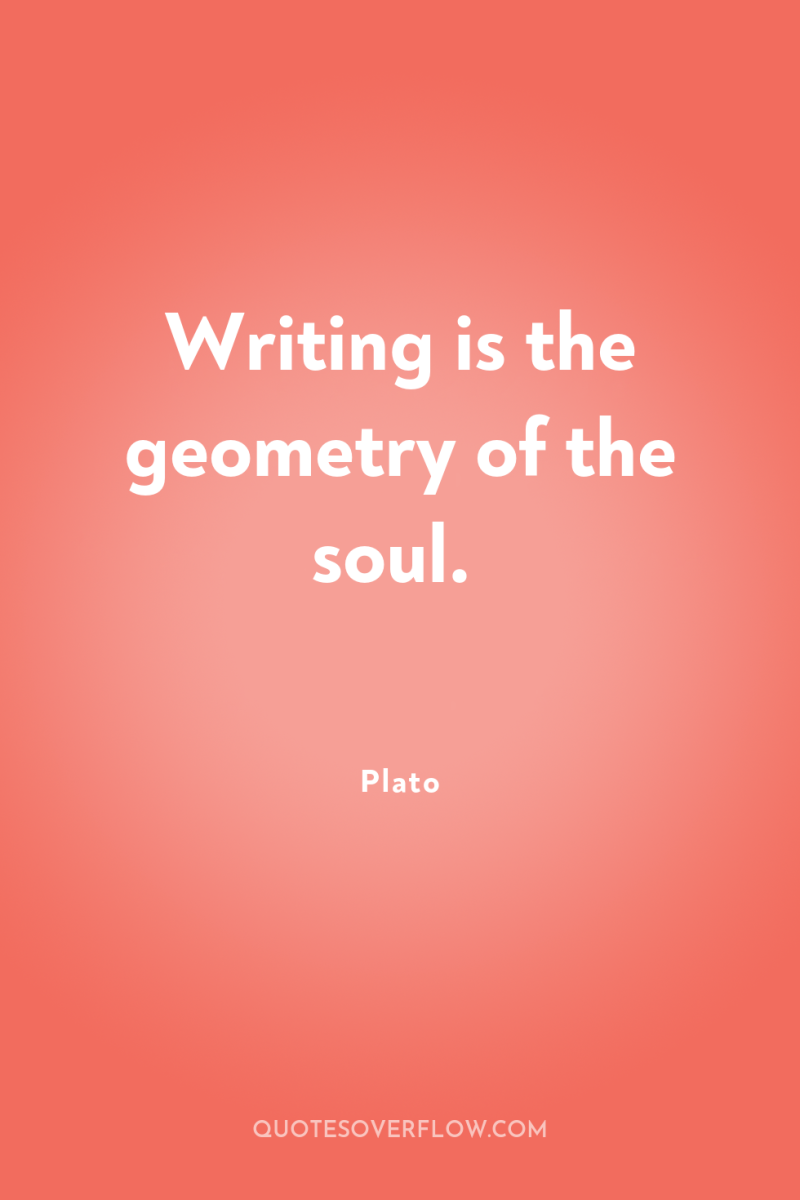
37
Writing is the geometry of the soul.Plato
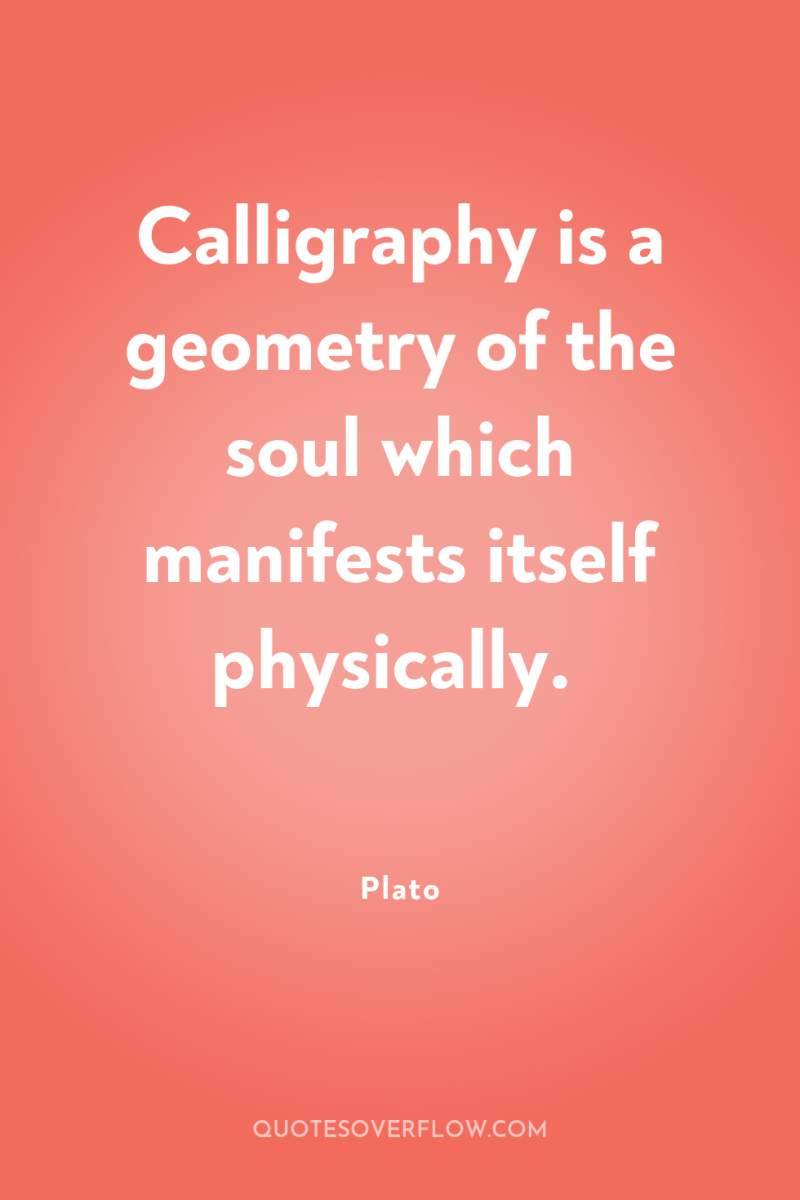
38
Calligraphy is a geometry of the soul which manifests itself physically.Plato
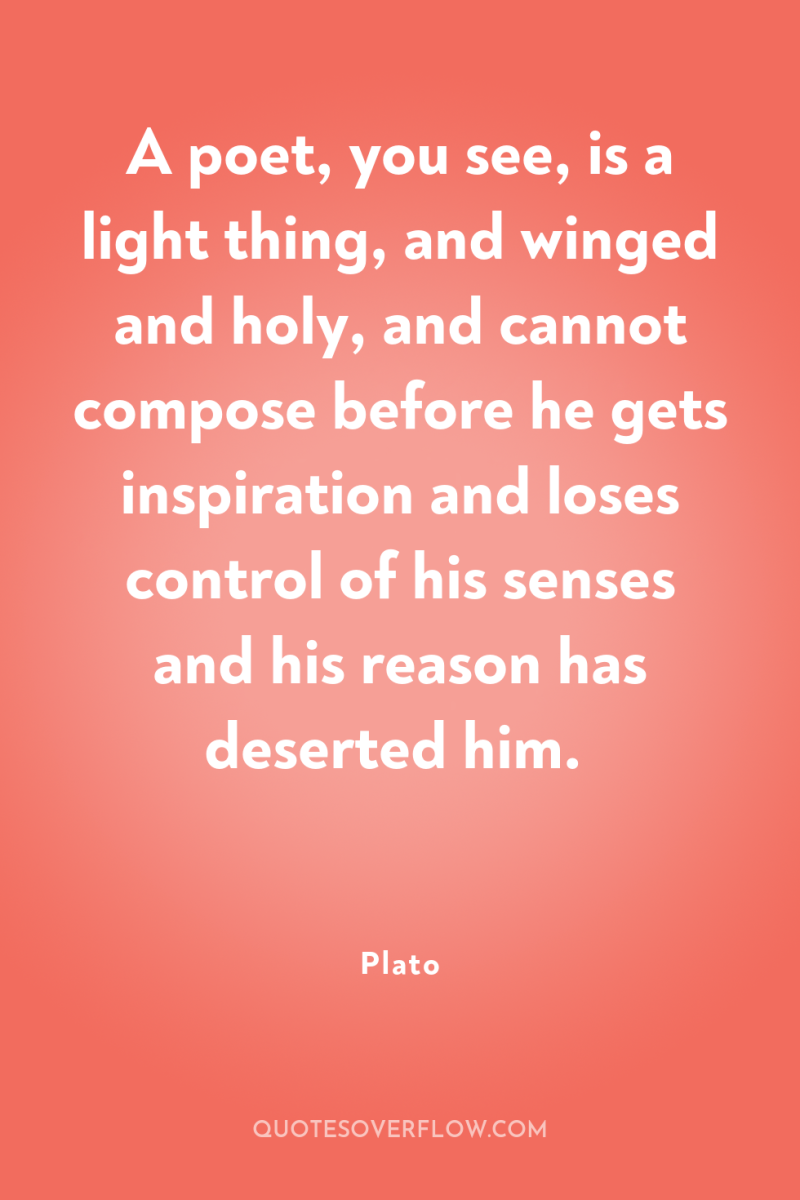
39
A poet, you see, is a light thing, and winged and holy, and cannot compose before he gets inspiration and loses control of his senses and his reason has deserted him.Plato
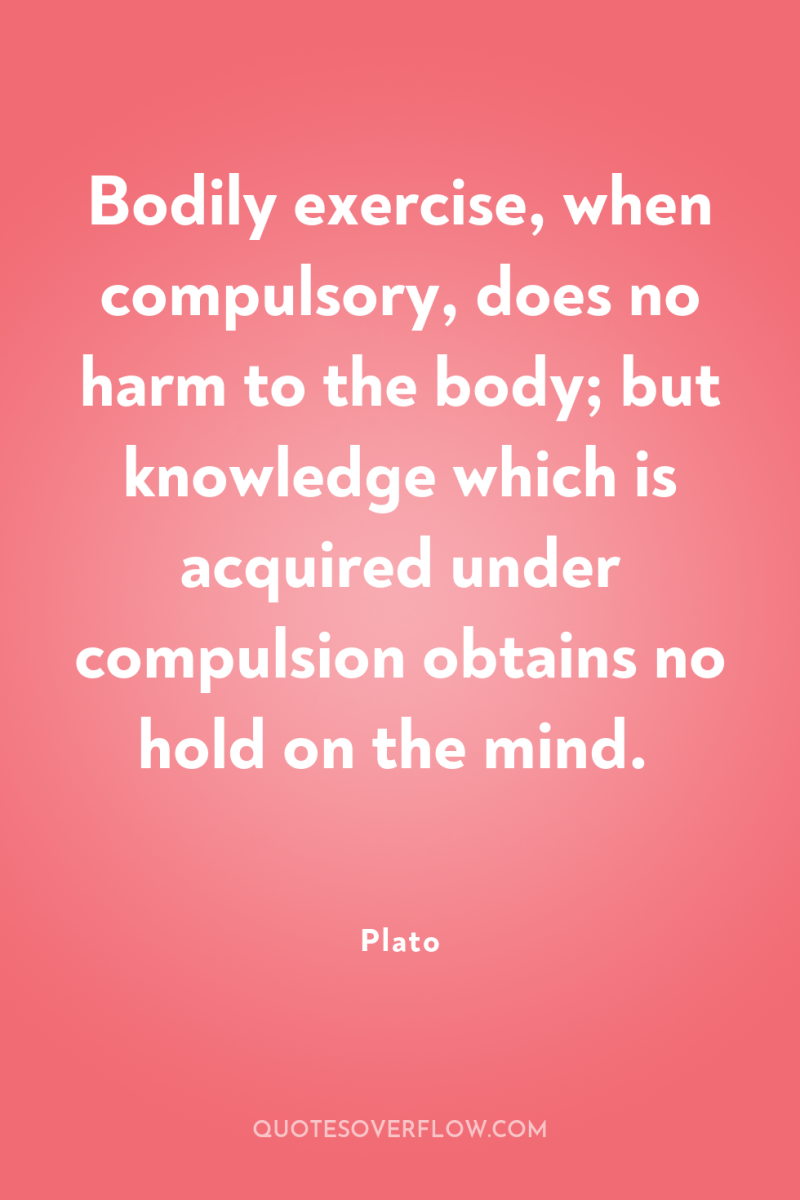
40
Bodily exercise, when compulsory, does no harm to the body; but knowledge which is acquired under compulsion obtains no hold on the mind.Plato
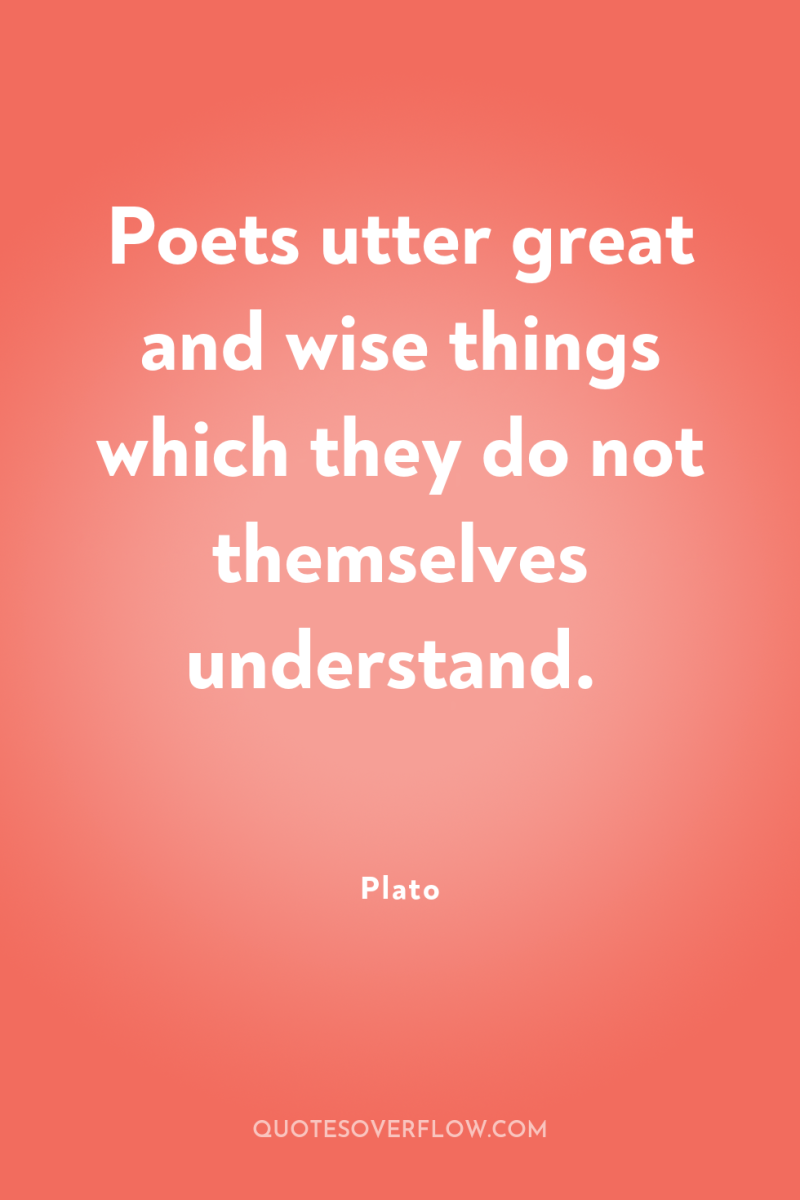
41
Poets utter great and wise things which they do not themselves understand.Plato
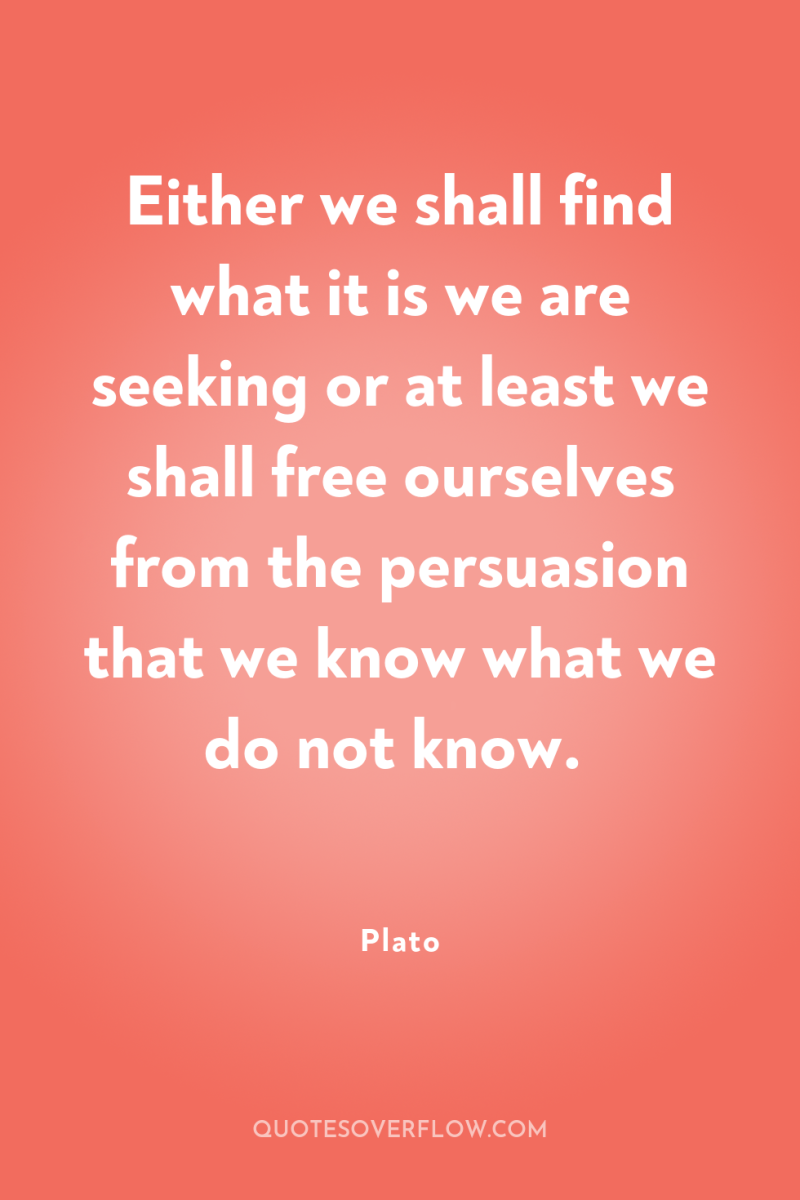
42
Either we shall find what it is we are seeking or at least we shall free ourselves from the persuasion that we know what we do not know.Plato
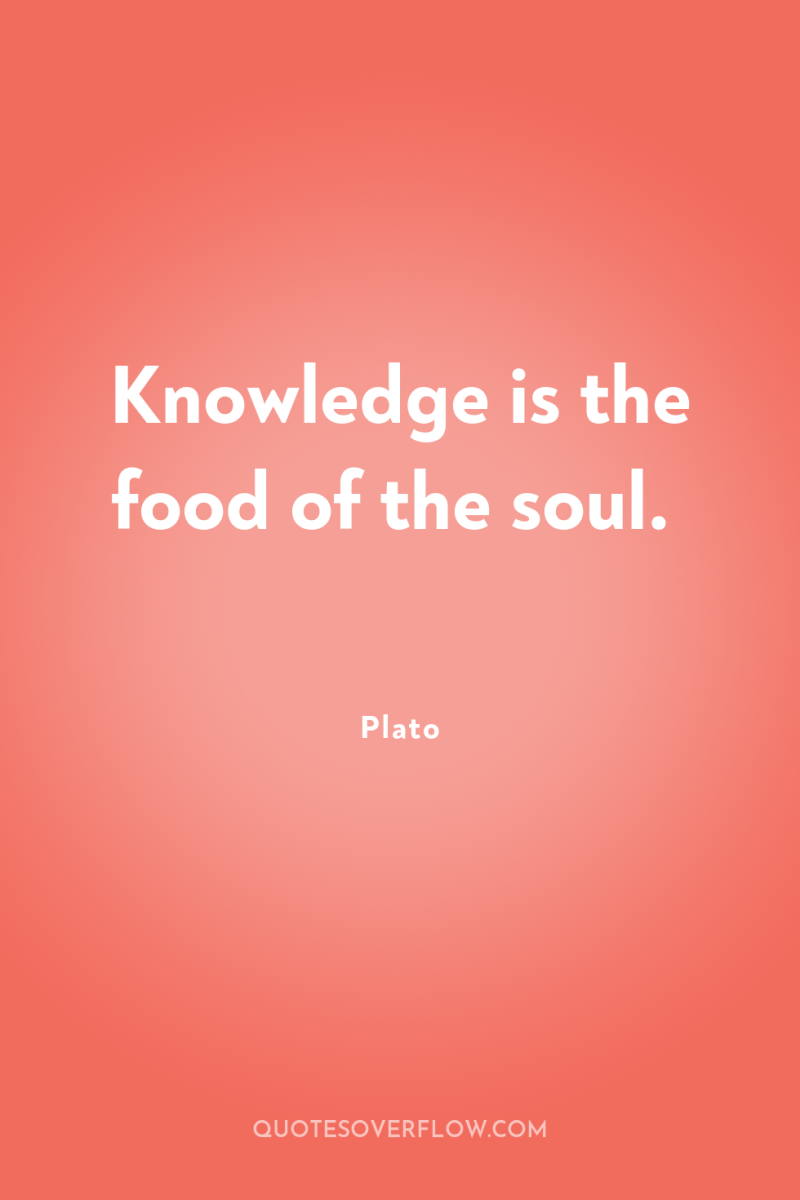
43
Knowledge is the food of the soul.Plato
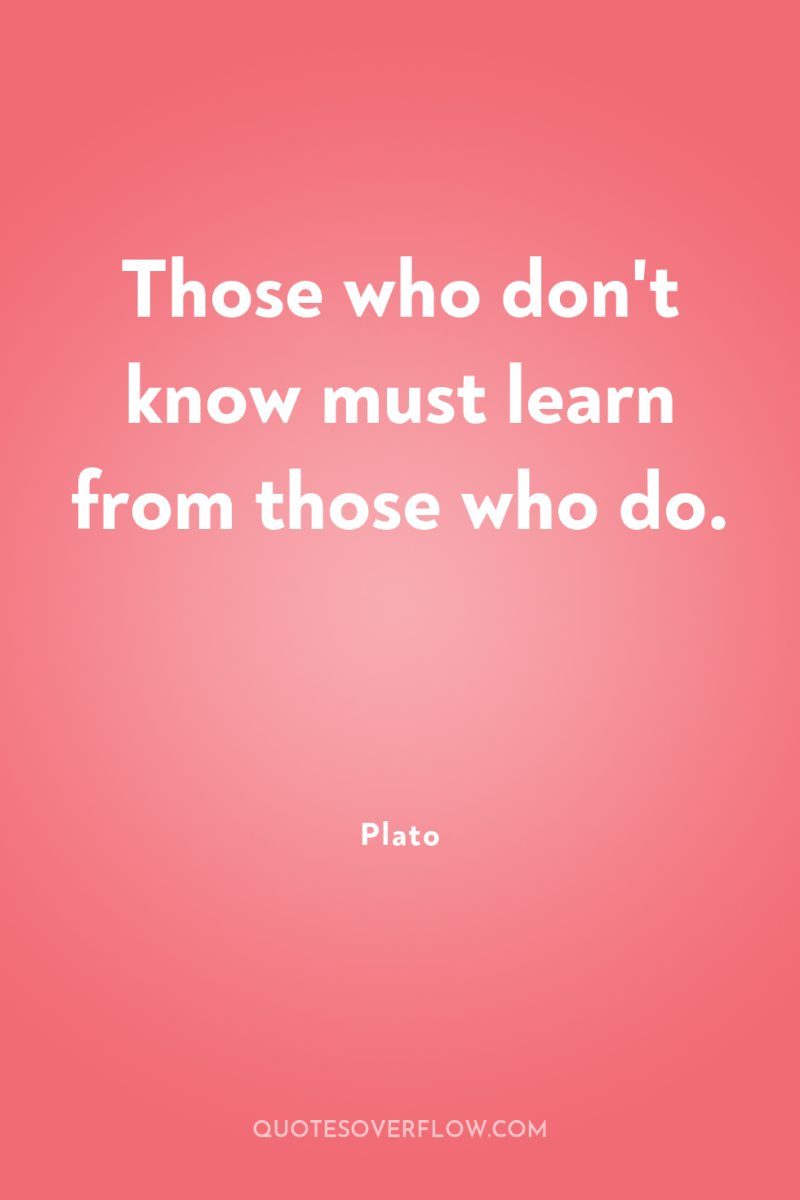
44
Those who don't know must learn from those who do.Plato
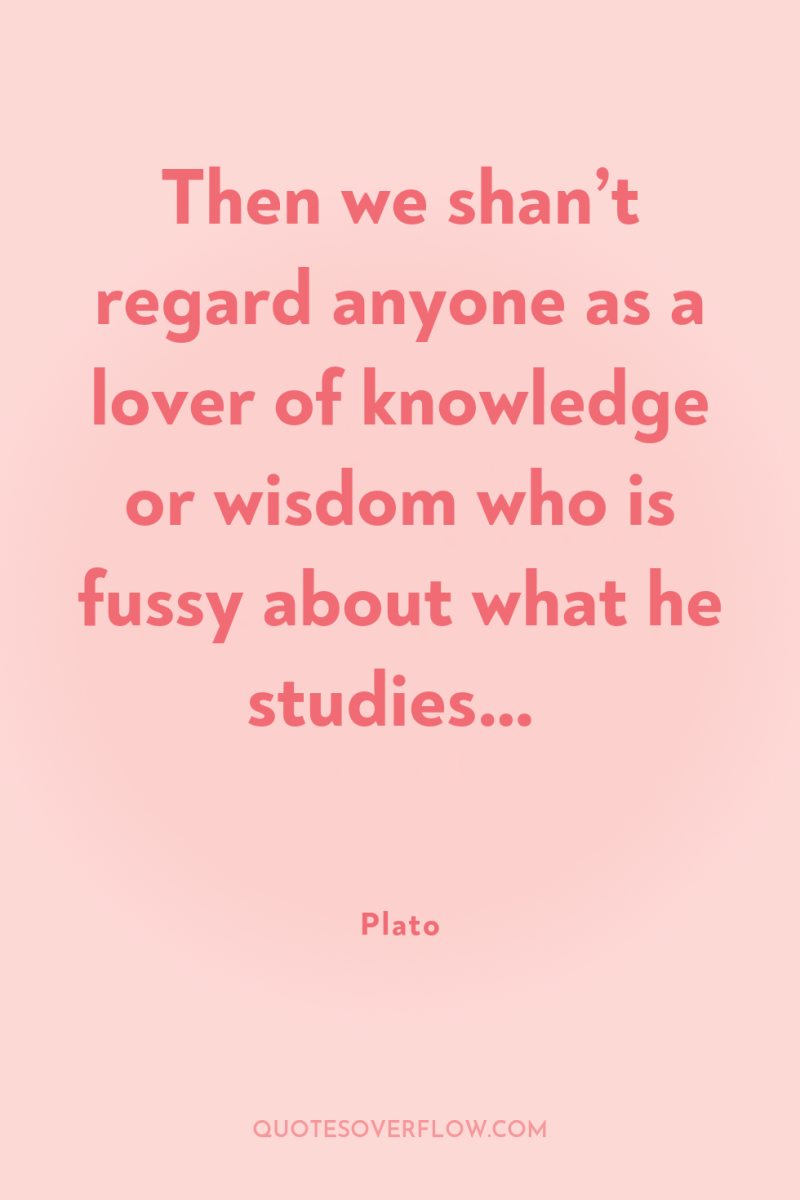
45
Then we shan’t regard anyone as a lover of knowledge or wisdom who is fussy about what he studies…Plato
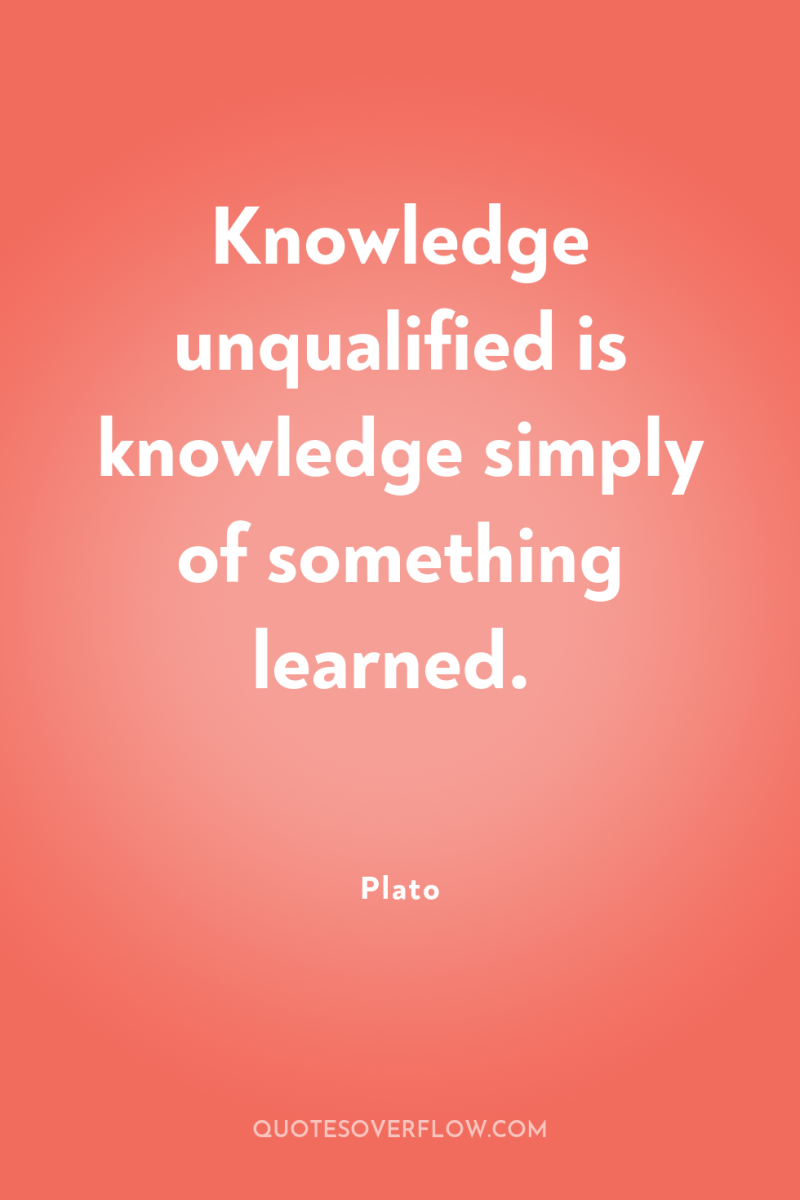
46
Knowledge unqualified is knowledge simply of something learned.Plato
47
And whenever any one informs us that he has found a man who knows all the arts, and all things else that anybody knows, and every single thing with a higher degree of accuracy than any other man —whoever tells us this, I think that we can only imagine him to be a simple creature who is likely to have been deceived by some wizard or actor whom he met, and whom he thought all-knowing, because he himself was unable to analyze the nature of knowledge and ignorance and imitation.Plato
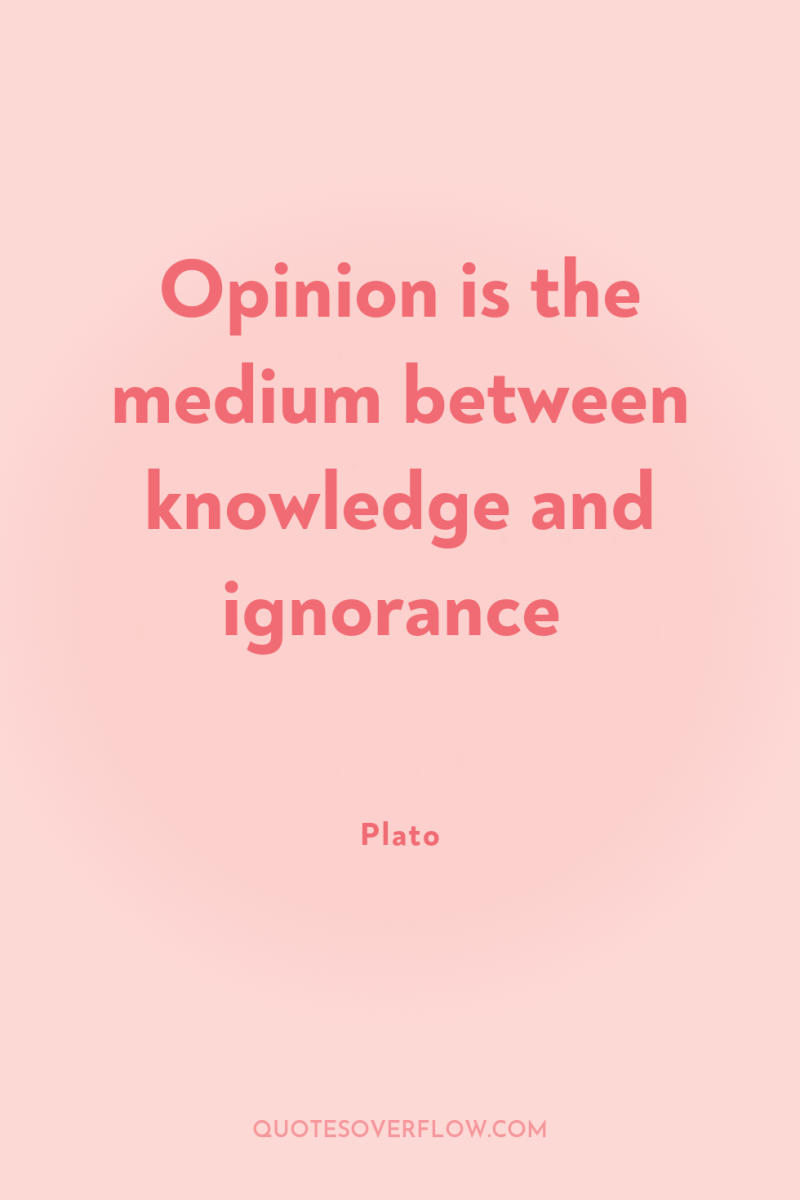
48
Opinion is the medium between knowledge and ignorancePlato
49
The soul takes nothing with her to the next world but her education and her culture. At the beginning of the journey to the next world, one's education and culture can either provide the greatest assistance, or else act as the greatest burden, to the person who has just died.Plato
50
That's what education should be, " I said, "the art of orientation. Educators should devise the simplest and most effective methods of turning minds around. It shouldn't be the art of implanting sight in the organ, but should proceed on the understanding that the organ already has the capacity, but is improperly aligned and isn't facing the right way.Plato
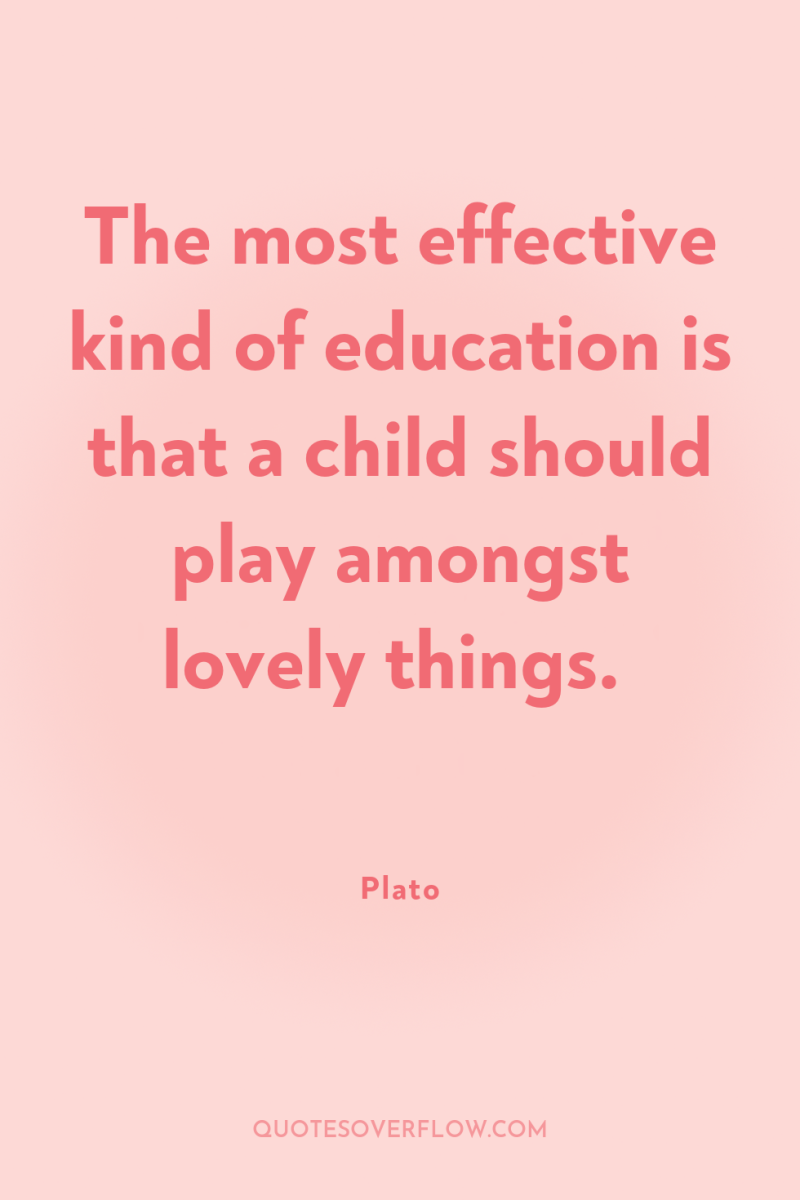
51
The most effective kind of education is that a child should play amongst lovely things.Plato
52
The direction in which education starts a man will determine his future lifePlato
53
The soul of him who has education is whole and perfect and escapes the worst disease, but, if a man's education be neglected, he walks lamely through life and returns good for nothing to the world below.Plato
54
Knowledge which is acquired under compulsion has no hold on the mind. Therefore do not use compulsion, but let early education be a sort of amusement; you will then be better able to discover the child's natural bent.Plato
55
It is the task of the enlightened not only to ascend to learning and to see the good but to be willing to descend again to those prisoners and to share their troubles and their honors, whether they are worth having or not. And this they must do, even with the prospect of death.Plato
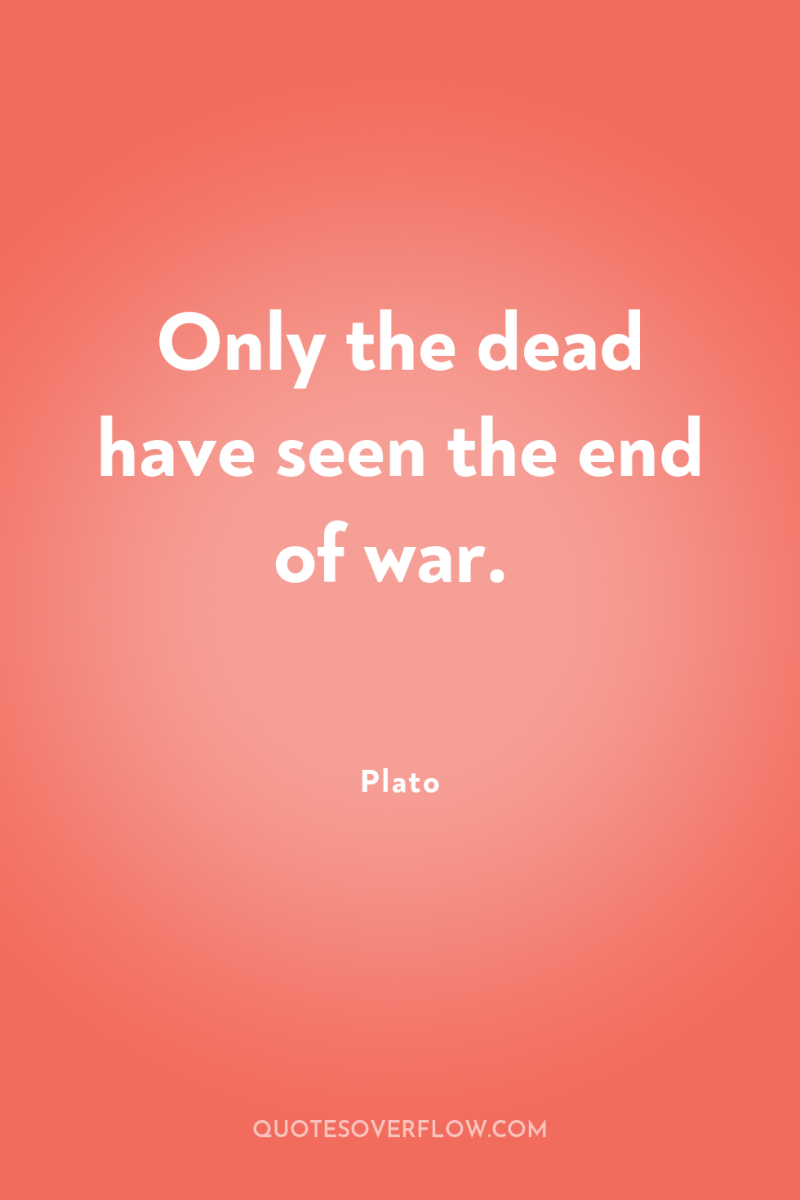
56
Only the dead have seen the end of war.Plato
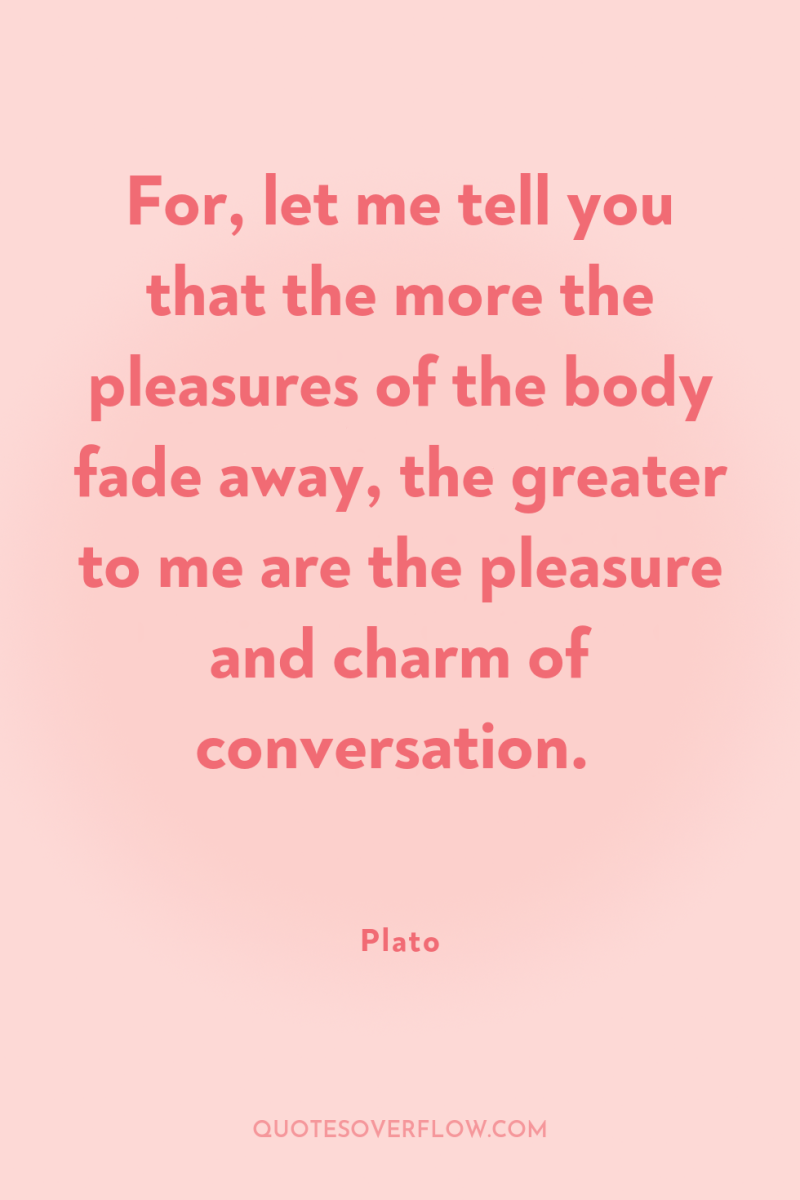
57
For, let me tell you that the more the pleasures of the body fade away, the greater to me are the pleasure and charm of conversation.Plato
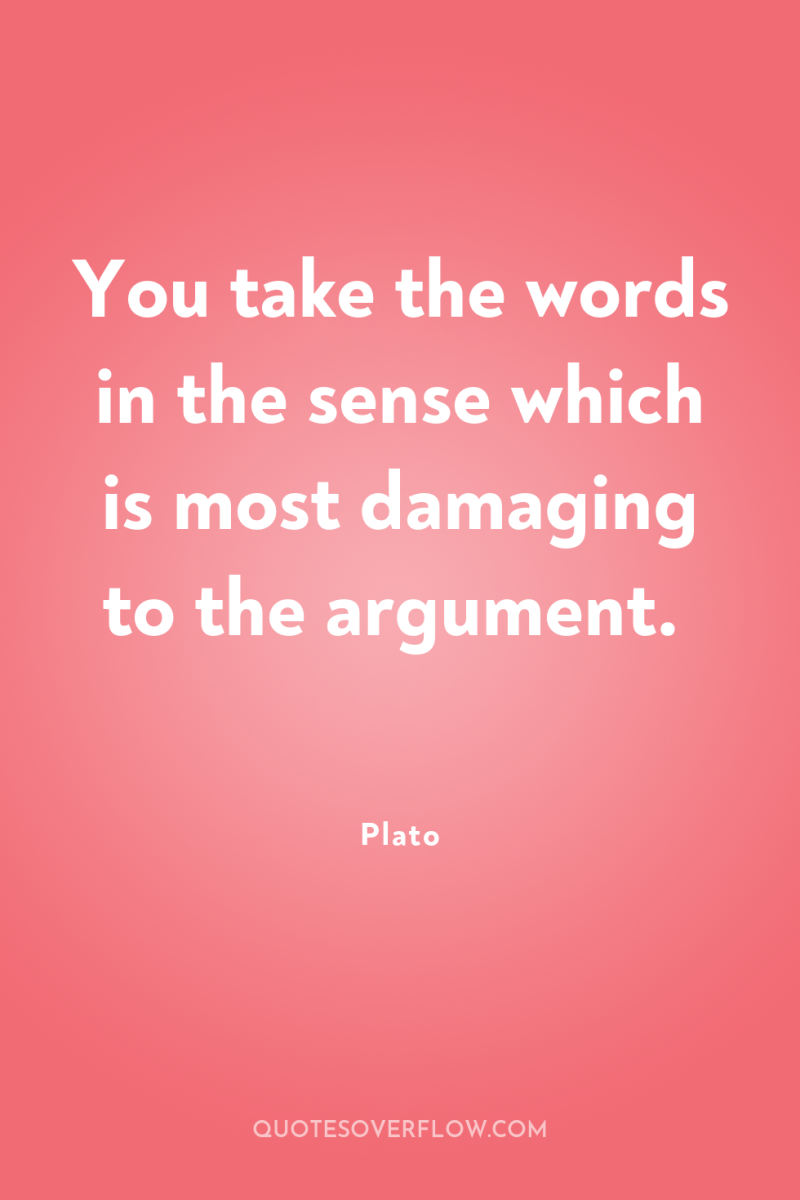
58
You take the words in the sense which is most damaging to the argument.Plato
59
We can easily forgive a child who is afraid of the dark the real tragedy of life is when men are afraid of the light.Plato
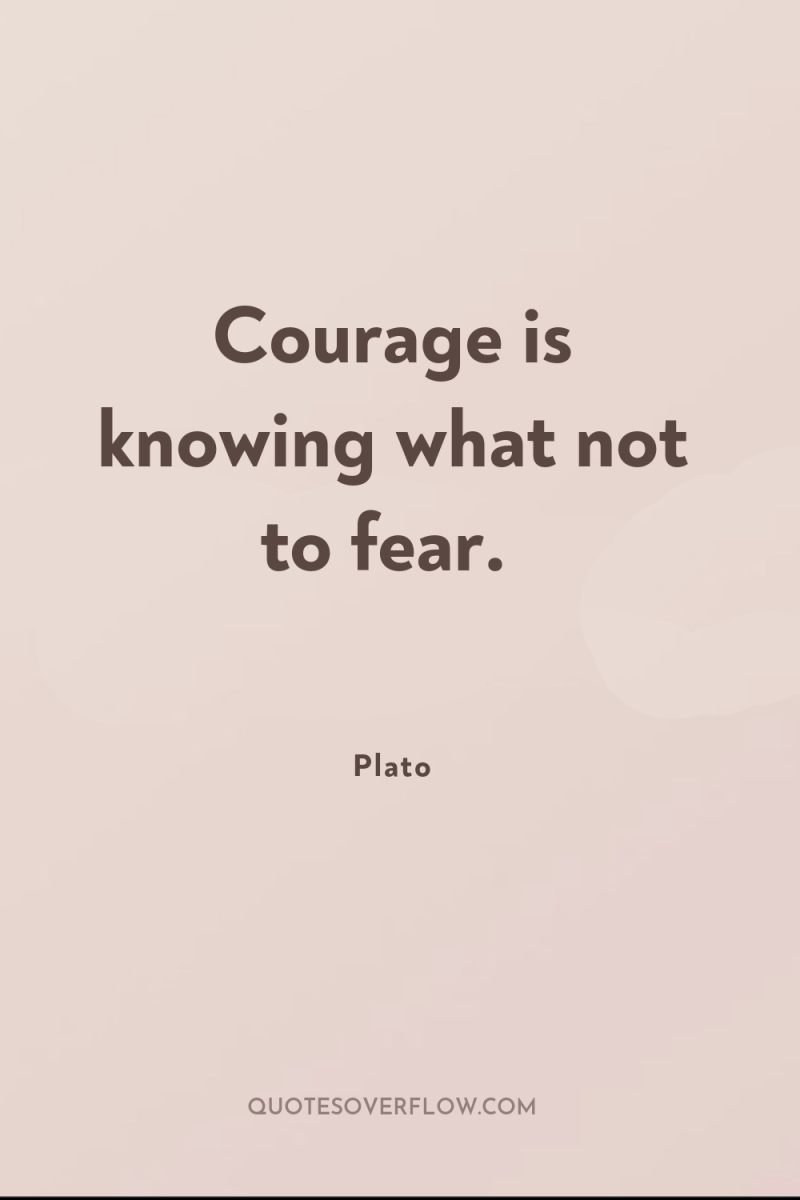
60
Courage is knowing what not to fear.Plato
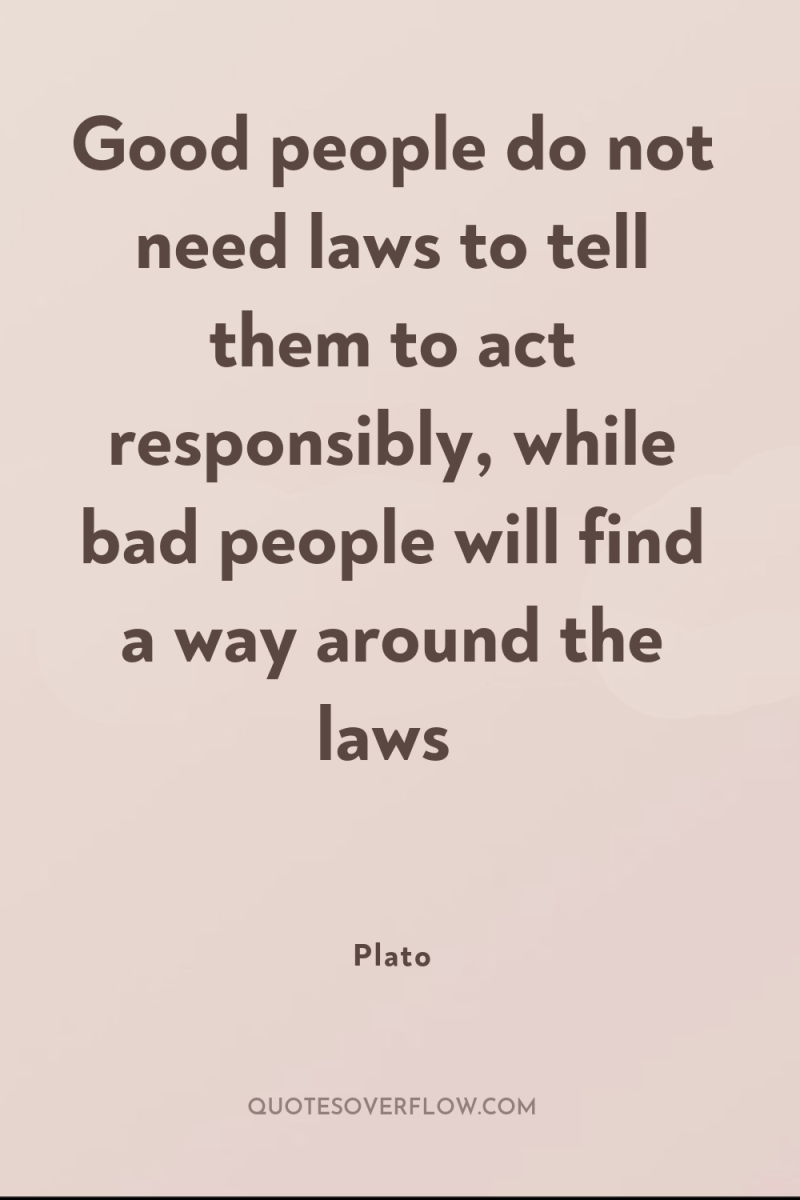
61
Good people do not need laws to tell them to act responsibly, while bad people will find a way around the lawsPlato
62
When the tyrant has disposed of foreign enemies by conquest or treaty and there is nothing to fear from them then he is always stirring up some wary or other in order that the people may require a leader.Plato
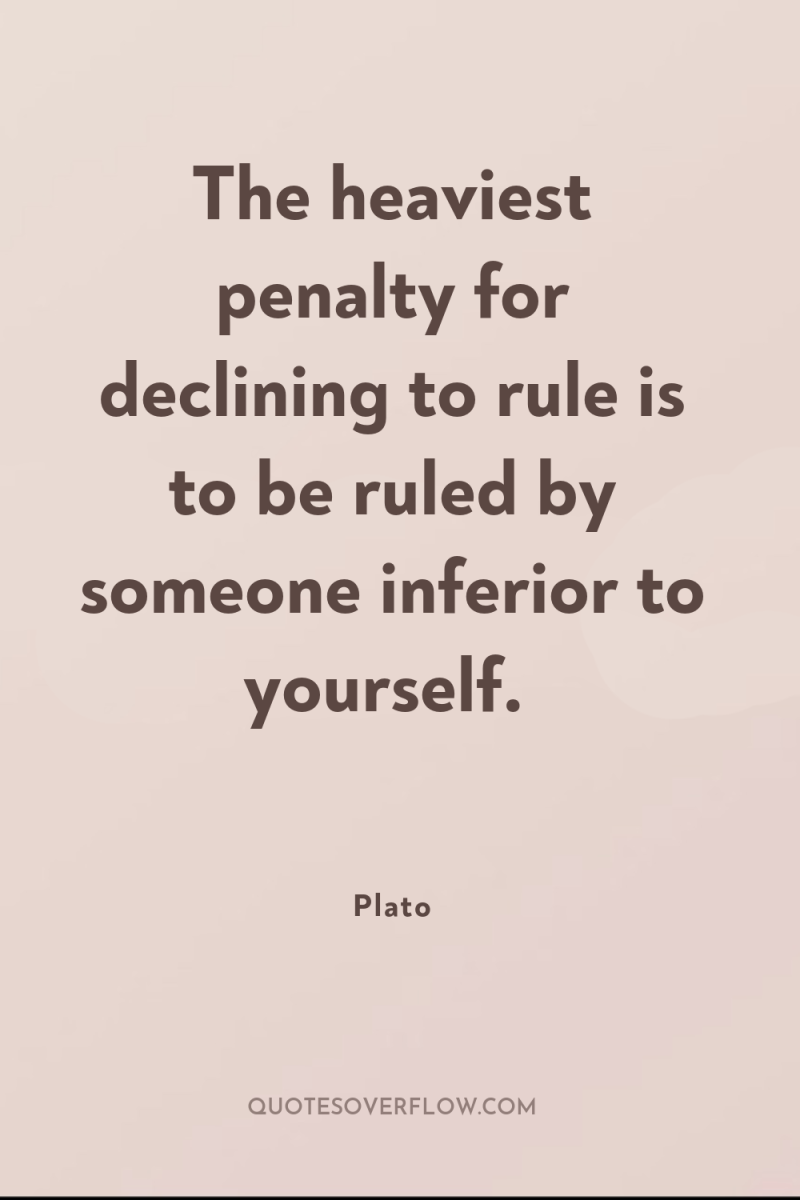
63
The heaviest penalty for declining to rule is to be ruled by someone inferior to yourself.Plato
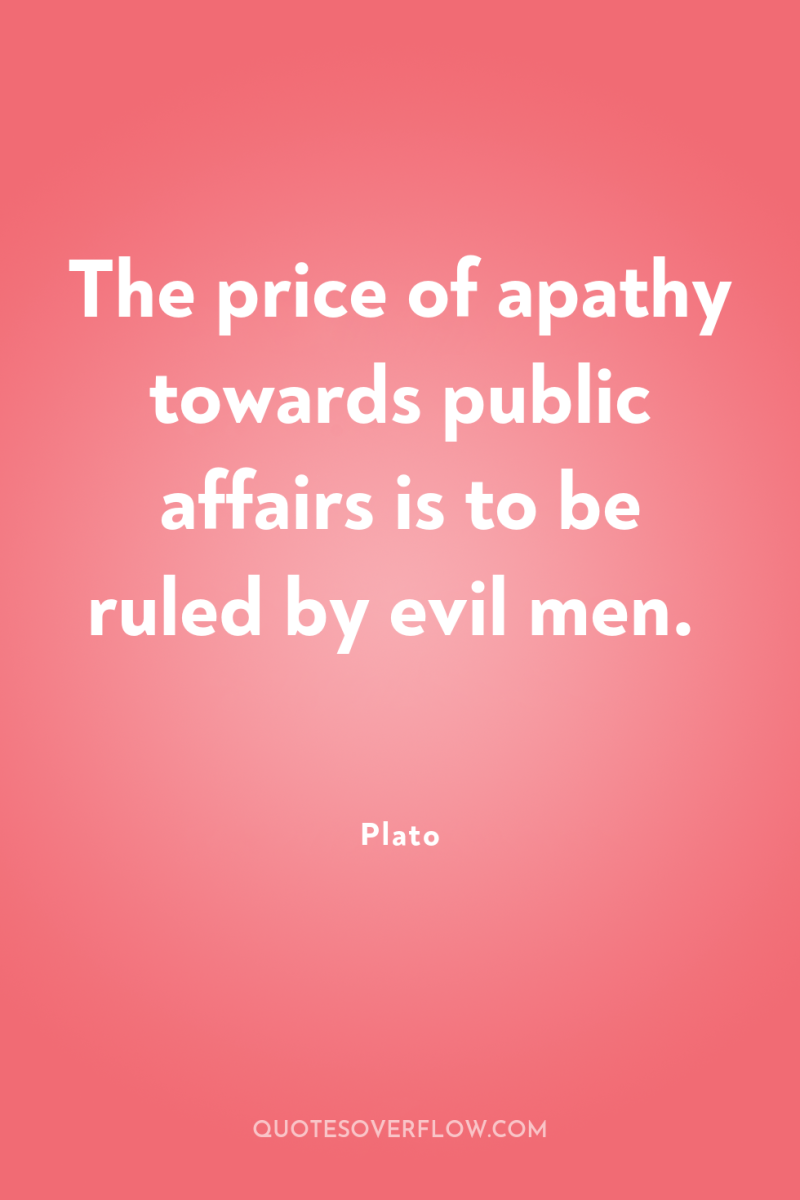
64
The price of apathy towards public affairs is to be ruled by evil men.Plato
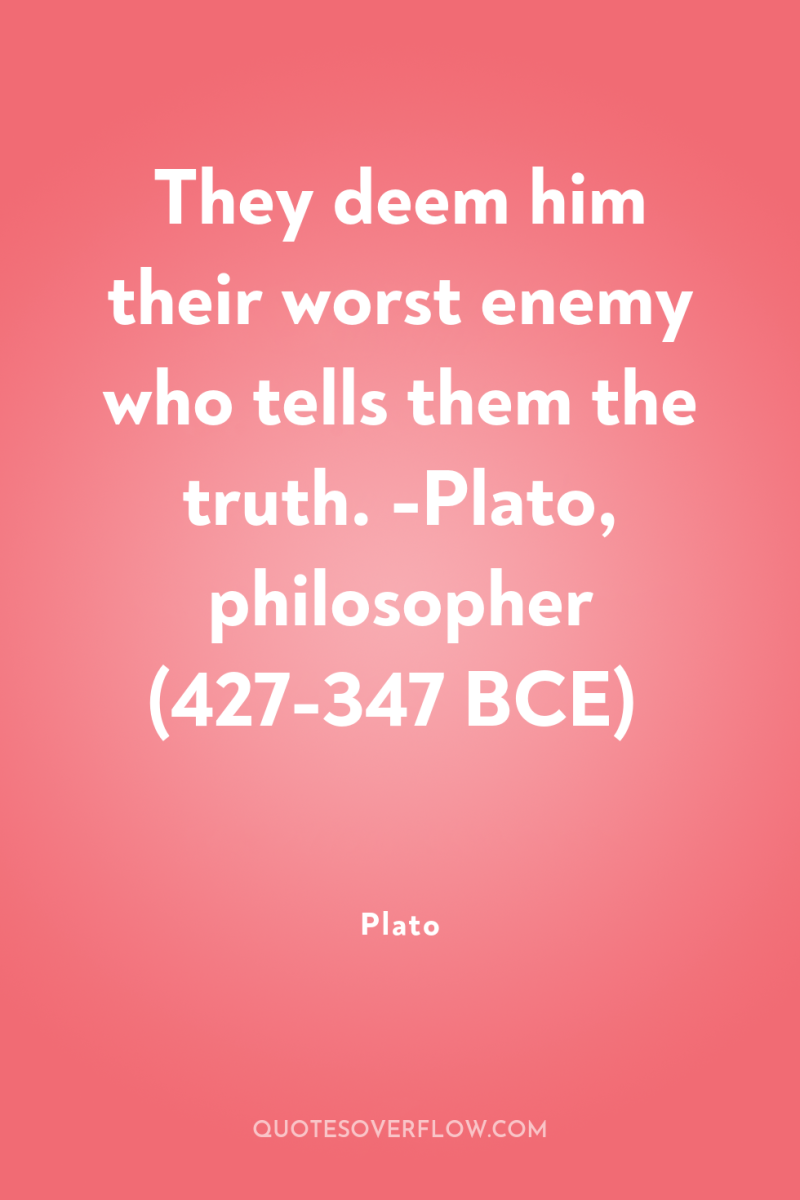
65
They deem him their worst enemy who tells them the truth. -Plato, philosopher (427-347 BCE)Plato
66
...[T]he right way is to give one's attention first to the highest good of the young, just as you expect a good gardener to give his attention first to the young plants, and after that to the others. - SocratesPlato
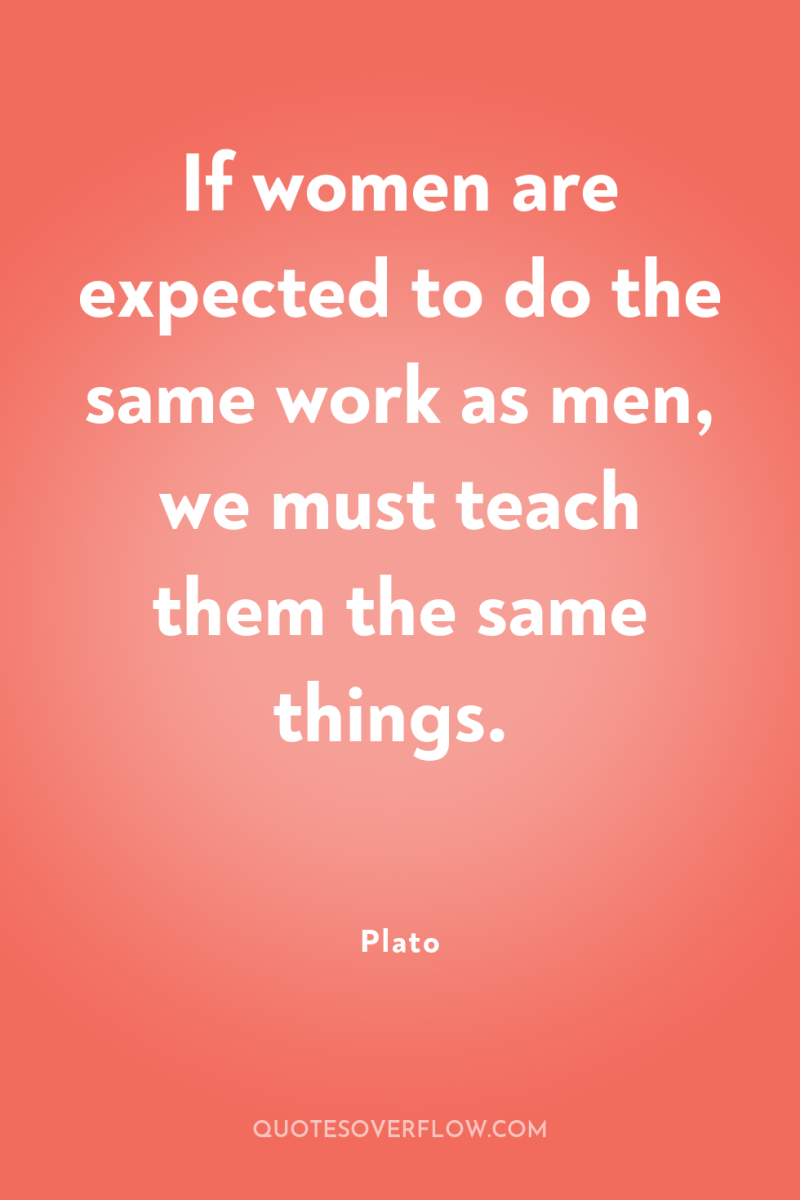
67
If women are expected to do the same work as men, we must teach them the same things.Plato
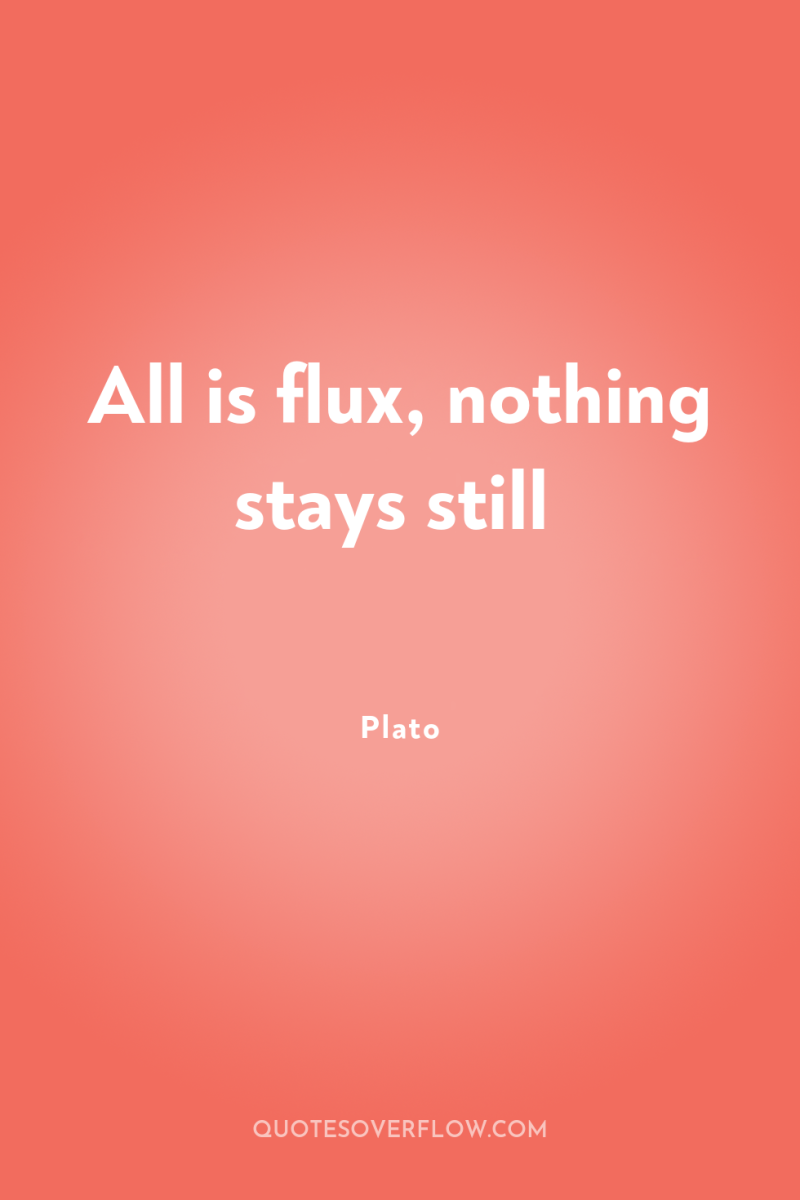
68
All is flux, nothing stays stillPlato
69
All began to change in the reverse direction and grow more tender. The white hair of the elderly began to grow black; the cheeks of the bearded to grow smooth, and one and all to return to the season of bloom that they had left behind them. Young men’s bodies grew smoother and smaller day by day and night by night till they reverted alike in mind and body to the likes of a newborn infant, and then dwindled right away and were clean lost to sight.Plato
70
If someone got to see the Beautiful itself, absolute, pure, unmixed, not polluted by human flesh or colors or any other great nonsense of mortality, but if he could see the divine Beauty itself in its one form? Do you think it would be a poor life for a human being to look there and to behold it by that which he ought, and to be with it? Or haven't you remembered that in that life alone, when he looks at Beauty in the only way what Beauty can be seen - only then will it become possible for him to give birth no to images of virtue (because he's in touch with no images) but to true virtue (because he is in touch with the true Beauty). The love of the gods belongs to anyone who has given birth to true virtue and nourished it, and if any human being could become immortal, it would be he.Plato
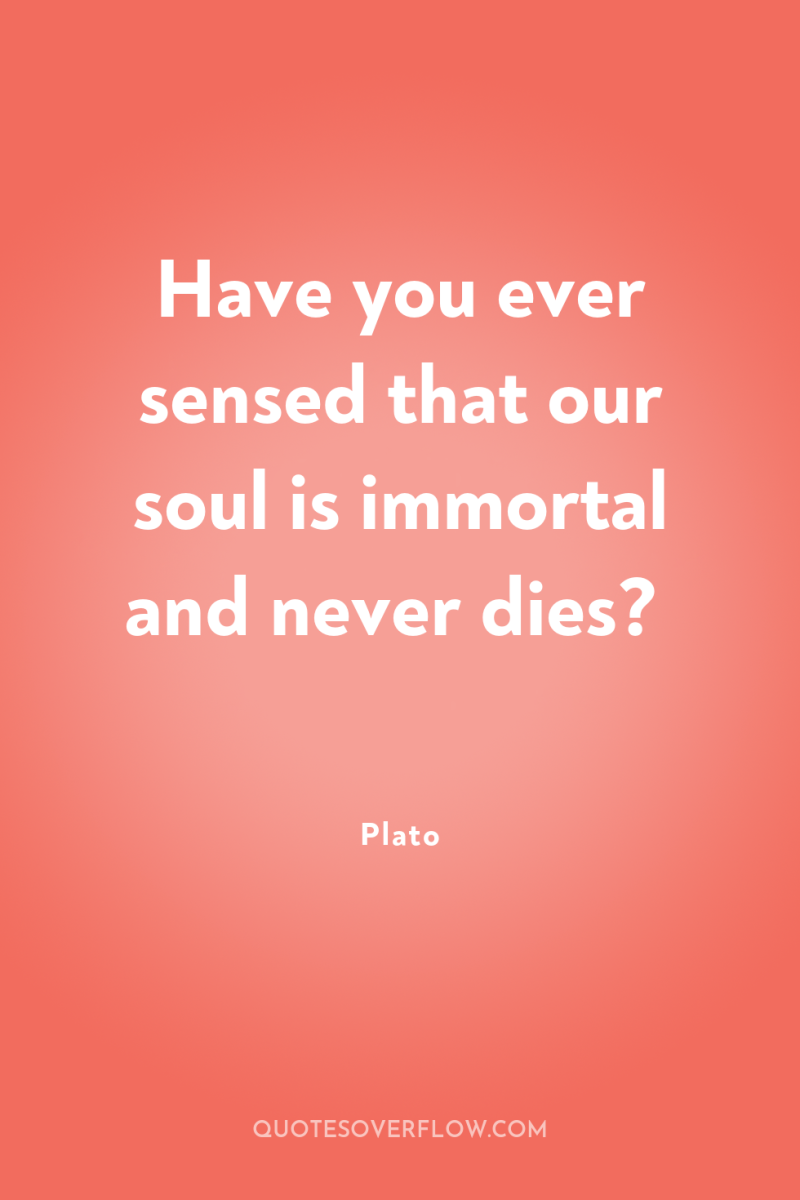
71
Have you ever sensed that our soul is immortal and never dies?Plato
72
... when someone sees a soul disturbed and unable to see something, he won't laugh mindlessly, but he'll take into consideration whether it has come from a brighter life and is dimmed through not having yet become accustomed to the dark or whether it has come from greater ignorance into greater light and is dazzled by the increased brillance.Plato
73
If someone got to see the Beautiful itself, absolute, pure, unmixed, not polluted by human flesh or colors or any other great nonsense of mortality, but if he could see the divine Beauty itself in its one form? Do you think it would be a poor life for a human being to look there and to behold it by that which he ought, and to be with it? Or haven't you remembered that in that life alone, when he looks at Beauty in the only way what Beauty can be seen - only then will it become possible for him to give birth no to images of virtue but to true virtue. The love of the gods belongs to anyone who has given birth to true virtue and nourished it, and if any human being could become immortal, it would be he.Plato
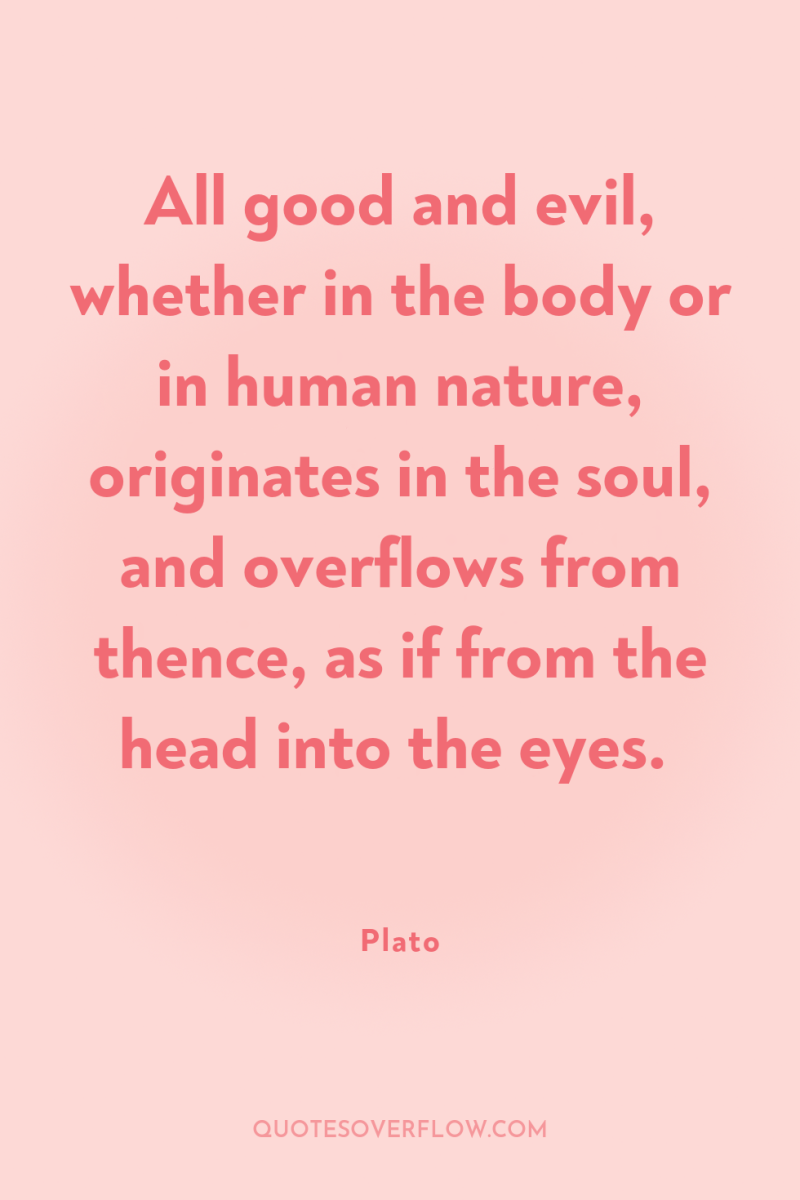
74
All good and evil, whether in the body or in human nature, originates in the soul, and overflows from thence, as if from the head into the eyes.Plato
75
Musical innovation is full of danger to the State, for when modes of music change, the fundamental laws of the State always change with them.Plato
76
No wealth can ever make a bad man at peace with himselfPlato
77
I would teach children music, physics, and philosophy; but most importantly music, for the patterns in music and all the arts are the keys to learningPlato
78
....harmony that would fittingly imitate the utterances and accents of a brave man who is engaged in warfare or in any enforced business, and who, when he has failed […] confronts fortune with steadfast endurance and repels her strokesPlato
79
Money-makers are tiresome company, as they have no standard but cash value.Plato
80
Physical excellence does not of itself produce a good mind and character: on the other hand, excellence of mind and character will make the best of the physique it is given.Plato
81
So when a man surrenders to the sound of music and lets its sweet, soft, mournful strains, which we have just described, be funnelled into his soul through his ears, and gives up all his time to the glamorous moanings of song, the effect at first on his energy and initiative of mind, if he has any, is to soften it as iron is softened in a furnace, and made workable instead of hard and unworkable: but if he persists and does not break the enchantment, the next stage is that it melts and runs, till the spirit has quite run out of him and his mental sinews (if I may so put it) are cut, and he has become what Homer calls "a feeble fighter".Plato
82
The measure of a man is what he does with power.Plato
83
The reason is that they utter these words of theirs not by virtue of a skill, but by a divine power - otherwise, if they knew how to speak well on one topic thanks to a skill, they would know how to speak about every other topic too.Plato
84
No man should bring children into the world who is unwilling to persevere to the end in their nature and education.Plato
85
Good people do not need laws to tell them to act responsibly, while bad people will find a way around the laws.Plato
86
The greatest mistake in the treatment of diseases is that there are physicians for the body and physicians for the soul, although the two cannot be separated.Plato
87
The greatest wealth is to live content with little.Plato
88
But I don't think we shall quarrel about a word - the subject of our inquiry is too important for that.Plato
89
Because a freeman ought not to be a slave in the acquisition of knowledge of any kind. Bodily exercise, when compulsory, does no harm to the body; but knowledge which is acquired under compulsion obtains no hold on the mind.Plato
90
Education isn't what some people declare it to be, namely, putting knowledge into souls that lack it, like putting sight into blind eyes.. The power to learn is present in everyone's soul and..the instrument with which each learns is like an eye that cannot be turned around from darkness to light without turning the whole body.. Then education is the craft concerned with doing this very thing, this turning around, and with how the soul can most easily and effectively be made to do it. it isn't the craft of putting sight into the soul. Education take for granted that sight is there but that it isn't turned the right way or looking where it ought to look, and it tries to redirect it appropriately.Plato
91
Light is the shadow of godPlato
92
No matter how hard you fight the darkness, every light casts a shadow, and the closer you get to the light, the darker that shadow becomes.Plato
93
The Muse herself makes some men inspired, from whom a chain of other men is strung out who catch their own inspiration from theirs.Plato
94
Be kind, for everyone you meet is fighting a harder battle.Plato
95
A dog has the soul of a philosopher.Plato
96
Be kind, because everyone is having a really hard time.Plato
97
And yet even in reaching for the beautiful there is beauty, and also in suffering whatever it is that one suffers en route.Plato
98
There is nothing which for my part I like better, Cephalus, than conversing with aged men; for I regard them as travellers who have gone a journey which I too may have to go, and of whom I ought to inquire, whether the way is smooth and easy, or rugged and difficult.Plato
99
[W]hen men have both done and suffered injustice and have had experience of both, not being able to avoid the one and obtain the other, they think that they had better agree among themselves to have neither; hence there arise laws and mutual covenants; and that which is ordained by law is termed by them lawful and just. This they affirm to be the origin and nature of justice;–it is a mean or compromise, between the best of all, which is to do injustice and not be punished, and the worst of all, which is to suffer injustice without the power of retaliation; and justice, being at a middle point between the two, is tolerated not as a good, but as the lesser evil… .Plato
100
["F]or it's not possible, " [Socrates] said, "for anybody to experience a greater evil than hating arguments. Hatred of arguments and hatred of human beings come about in the same way. For hatred of human beings arises from artlessly trusting somebody to excess, and believing that human being to be in every way true and sound and trustworthy, and then a little later discovering that this person is wicked and untrustworthy - and then having this experience again with another. And whenever somebody experiences this many times, and especially at the hands of just those he might regard as his most intimate friends and comrades, he then ends up taking offense all the time and hates all human beings and believes there's nothing at all sound in anybody. .Plato